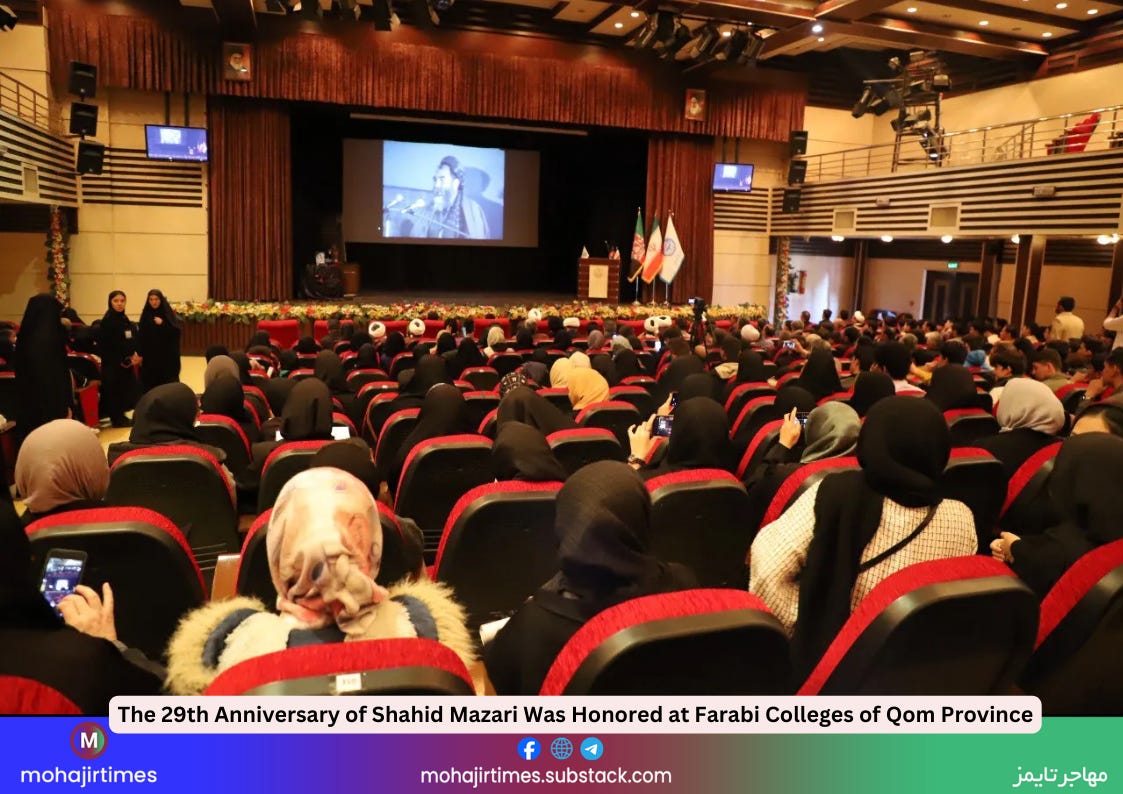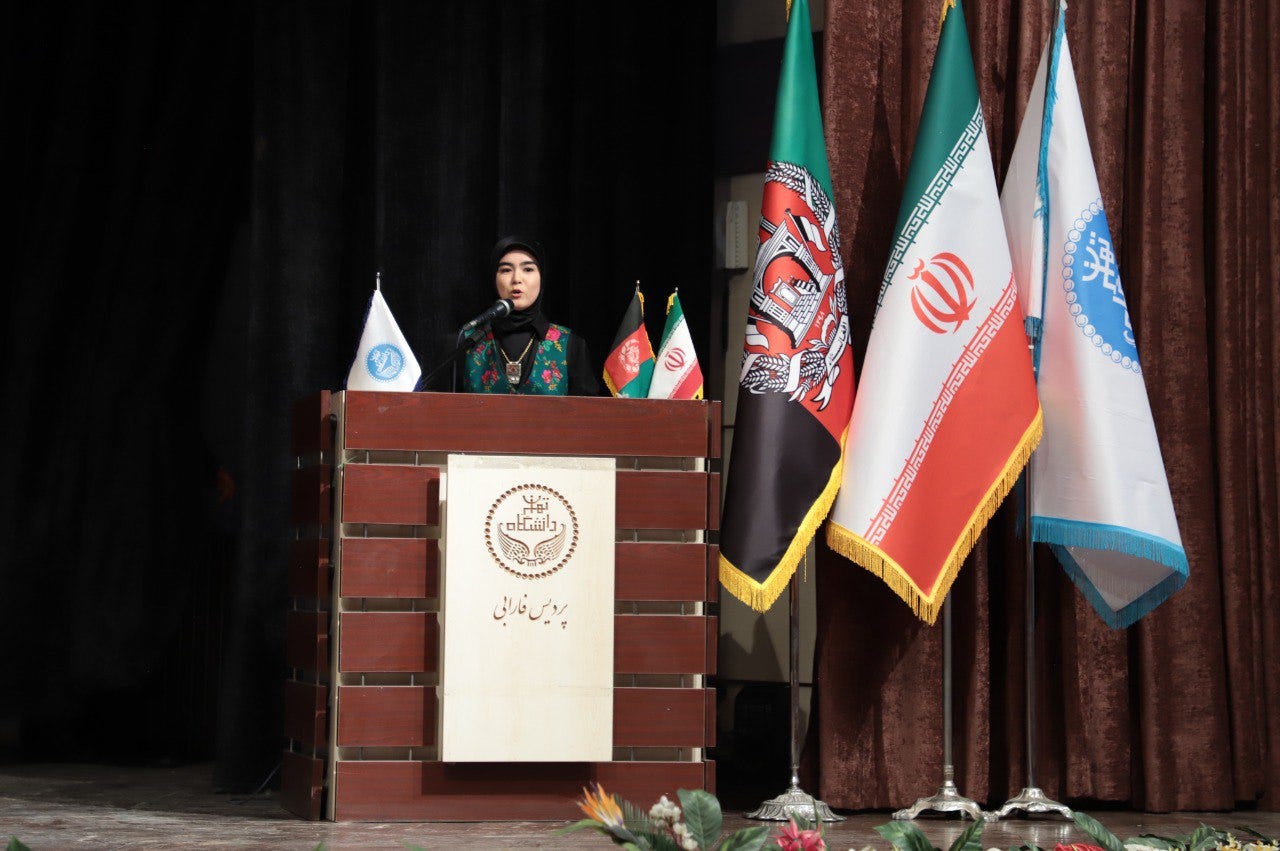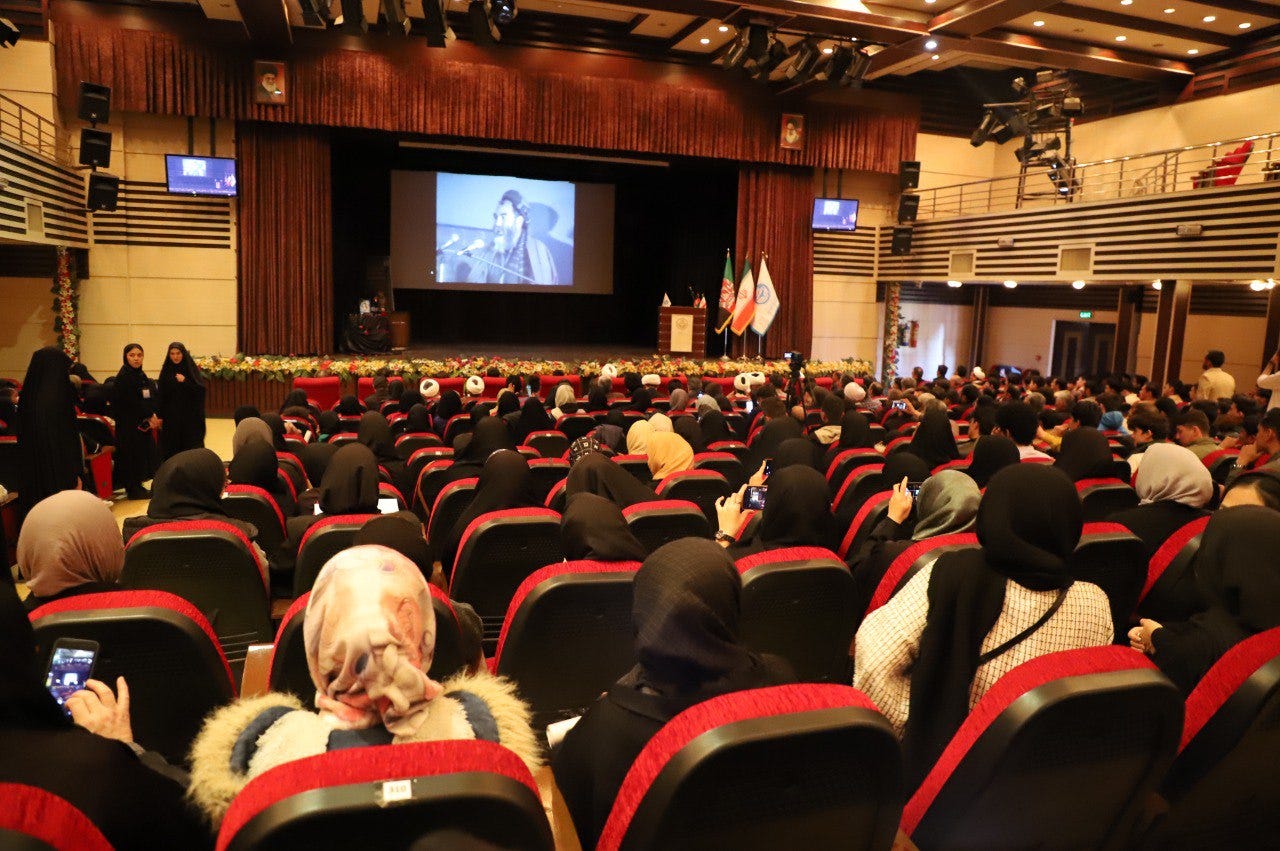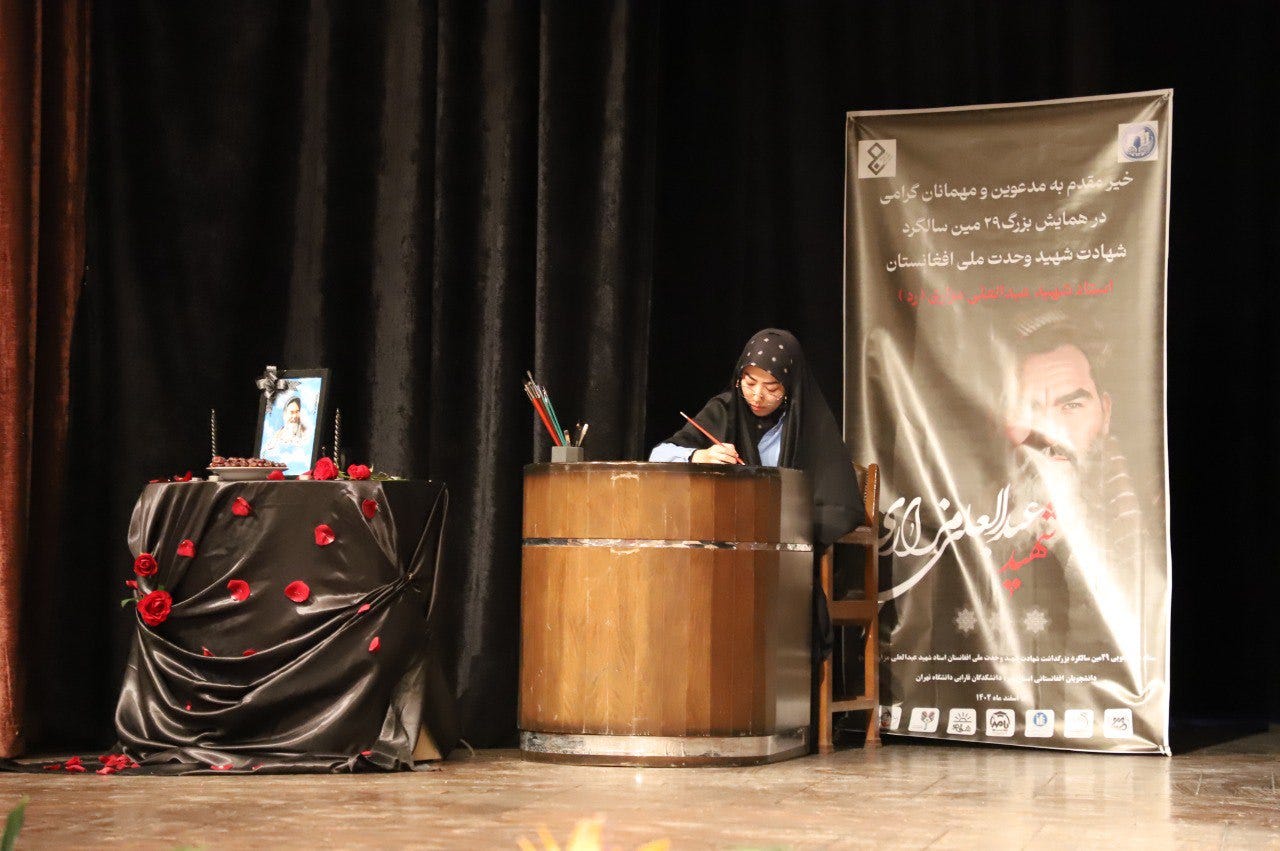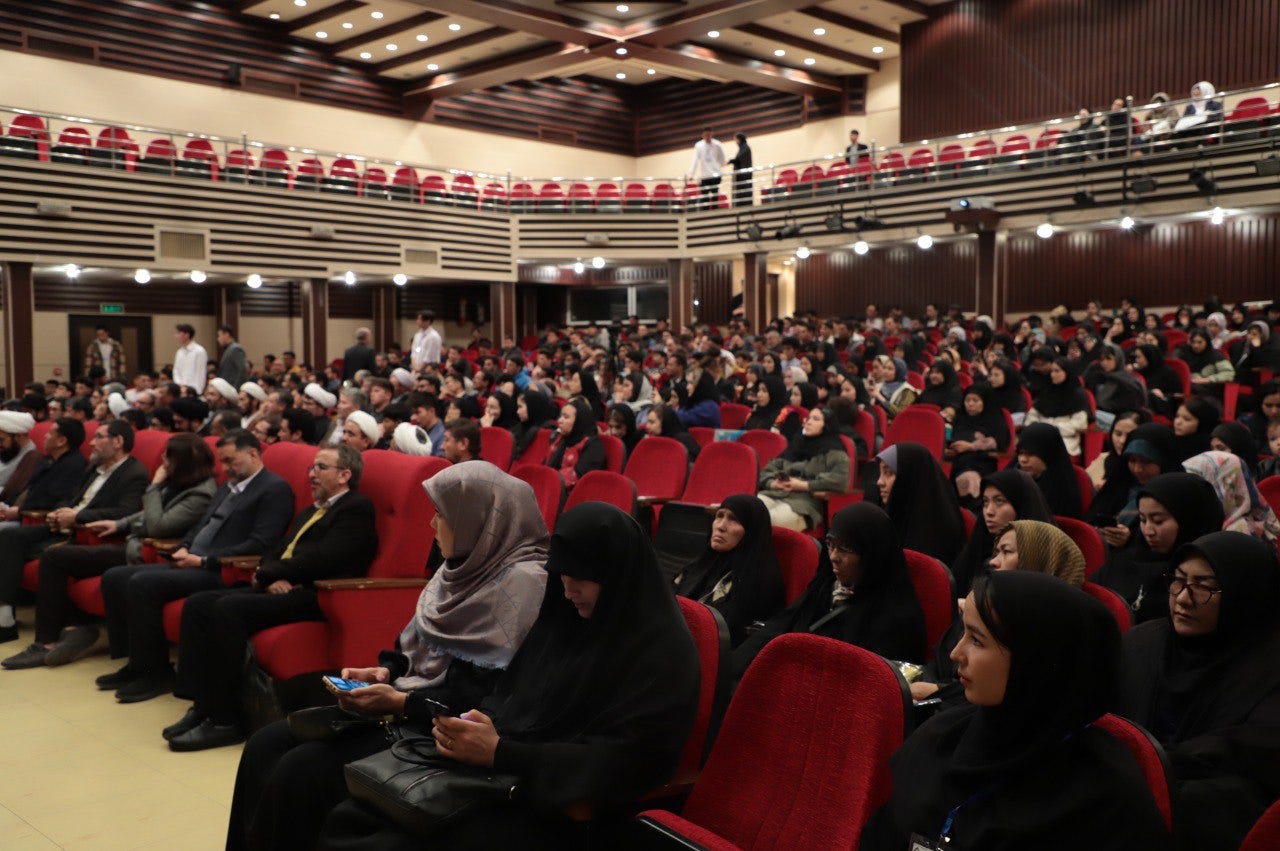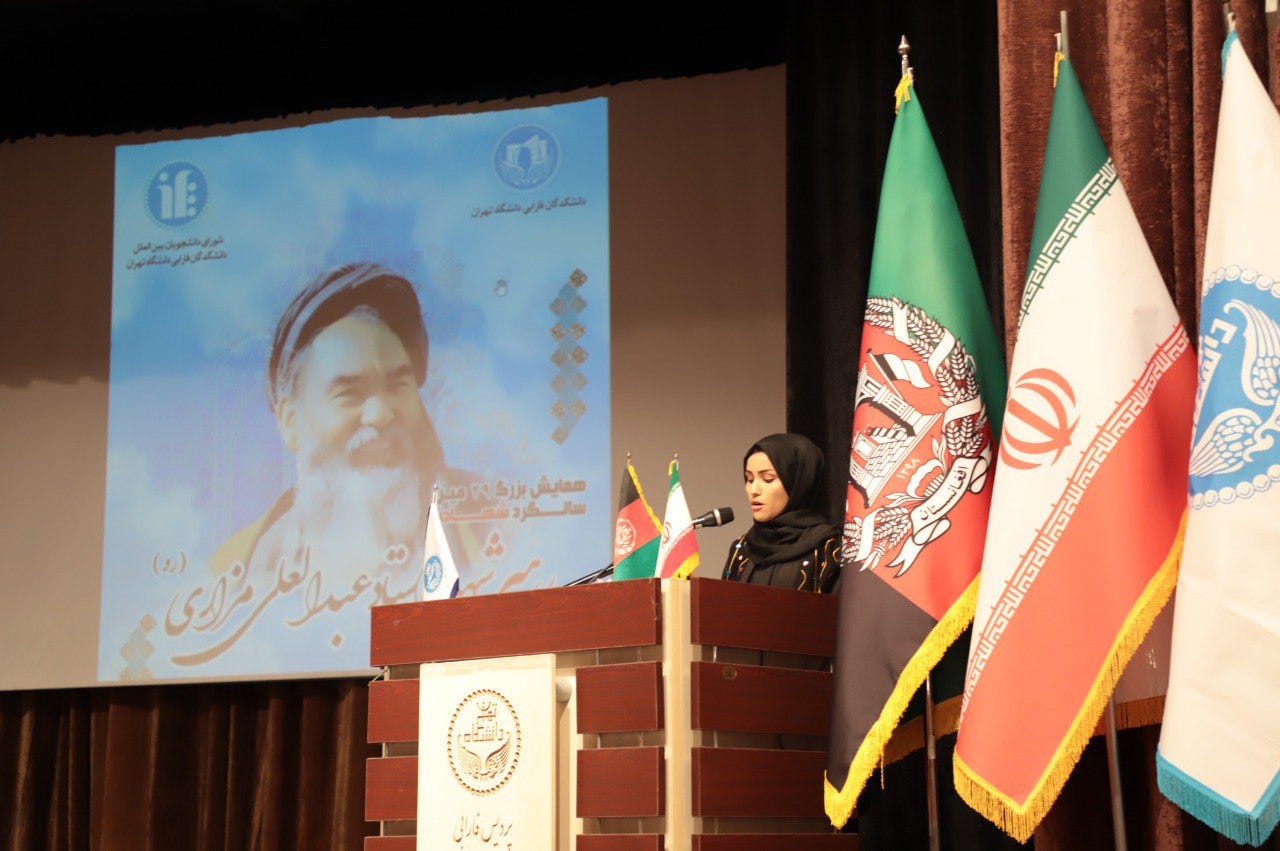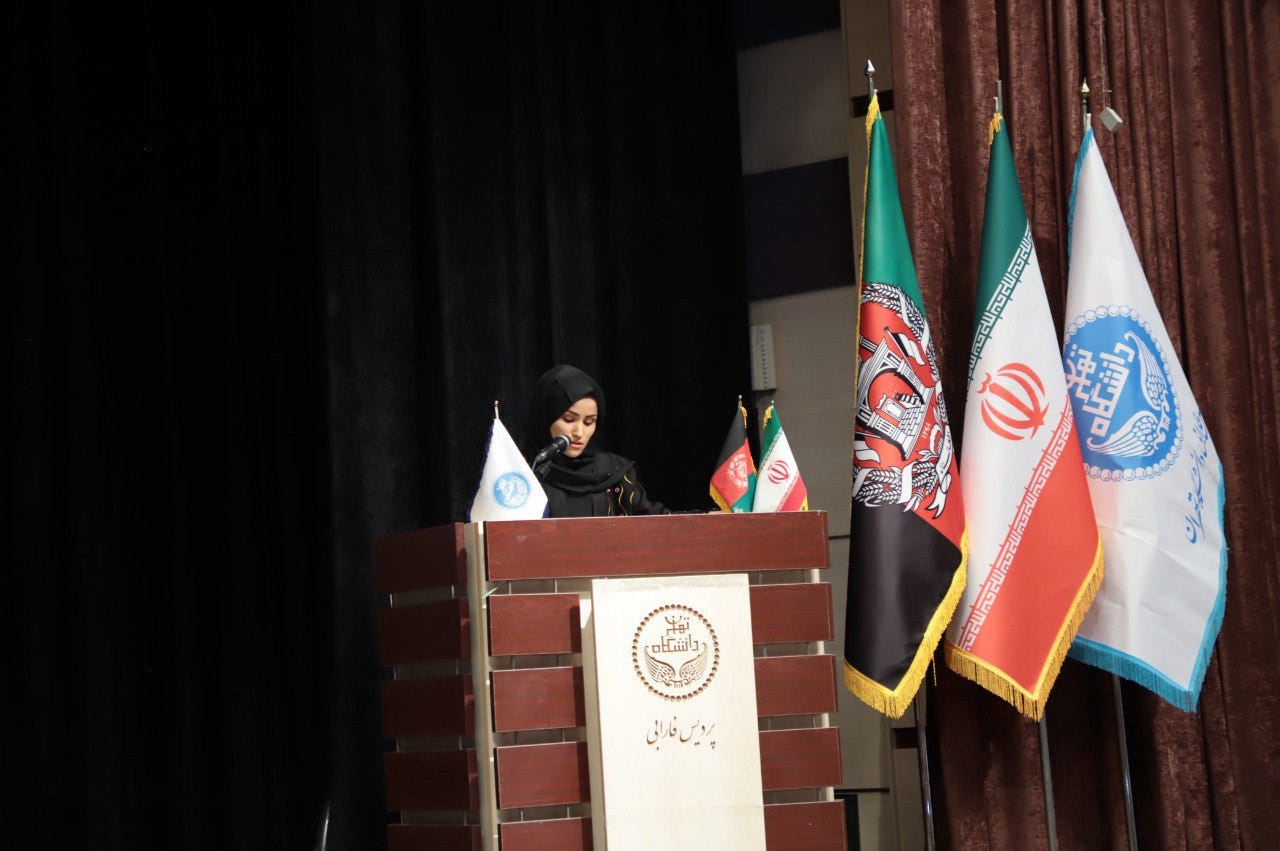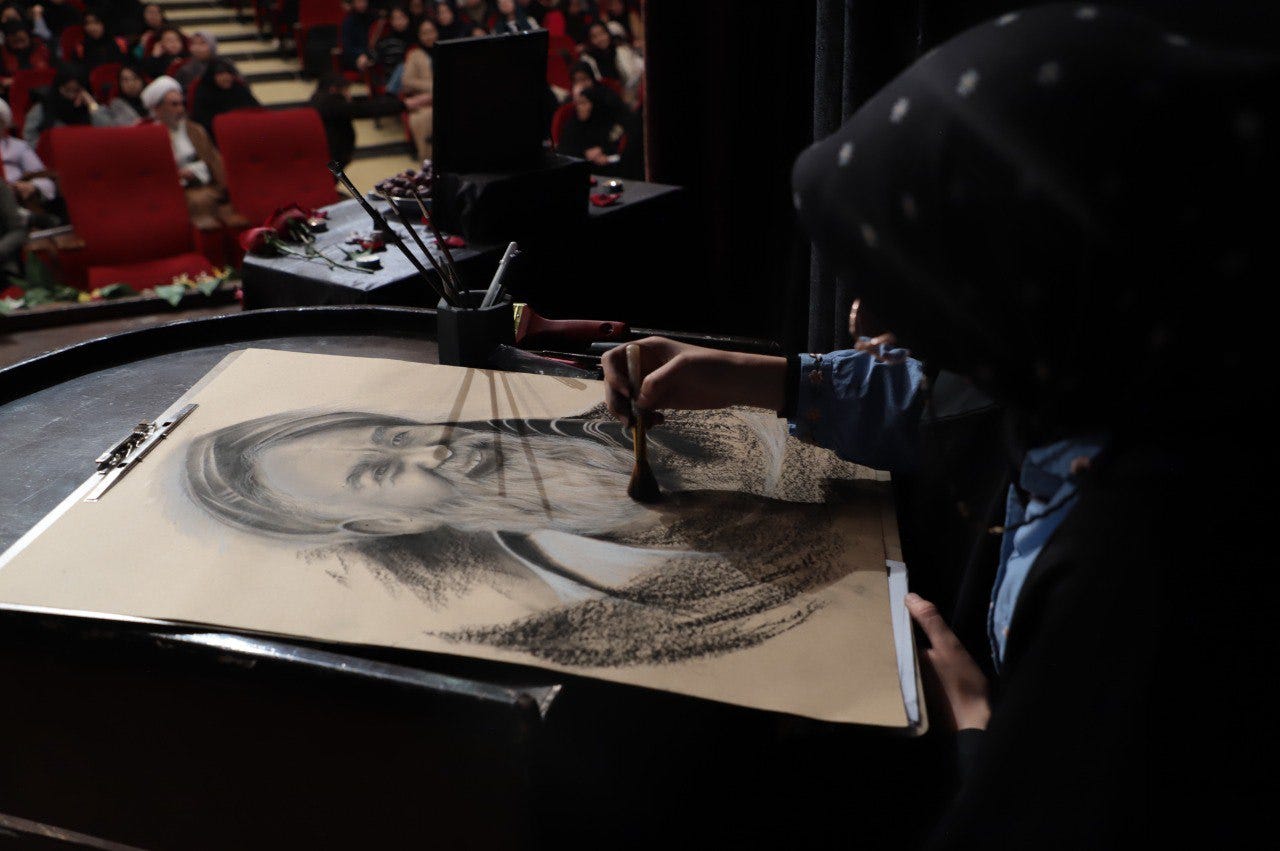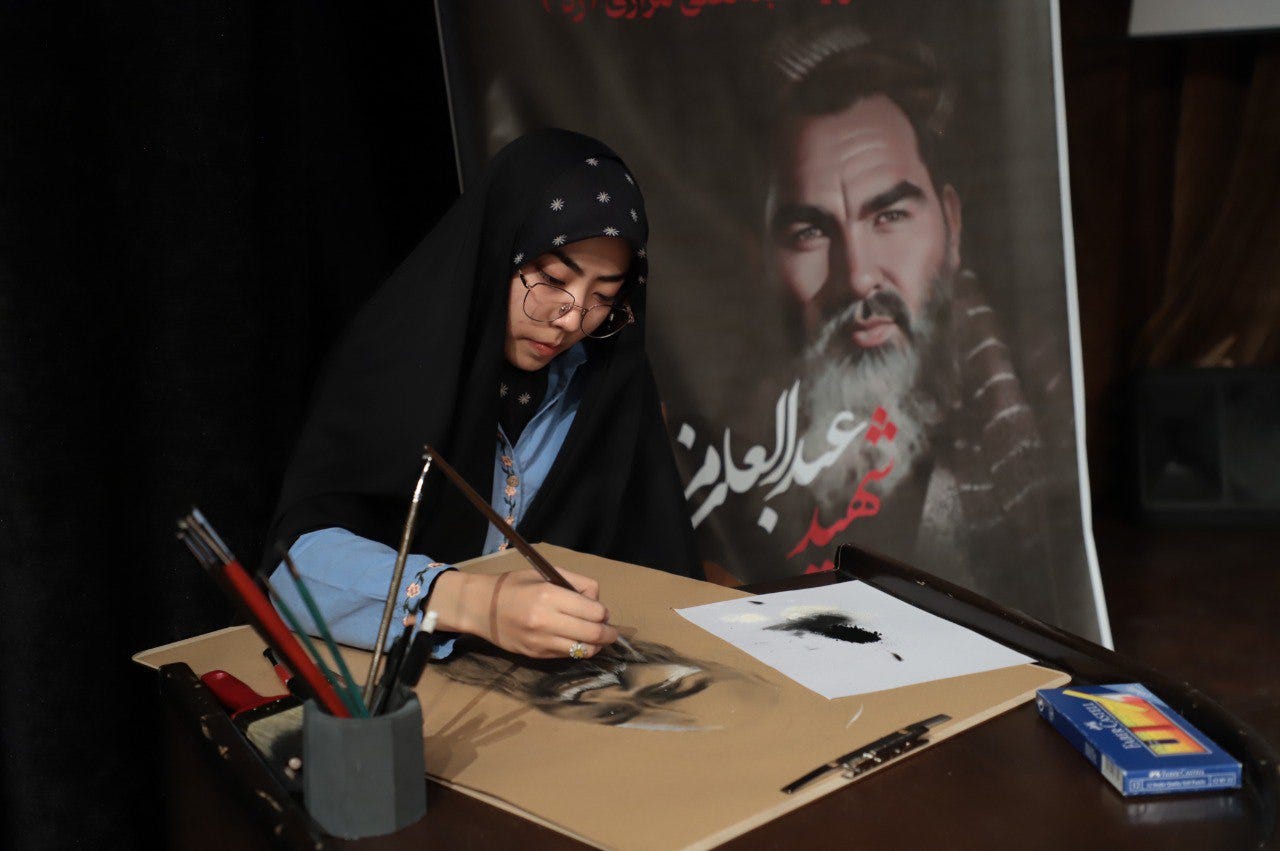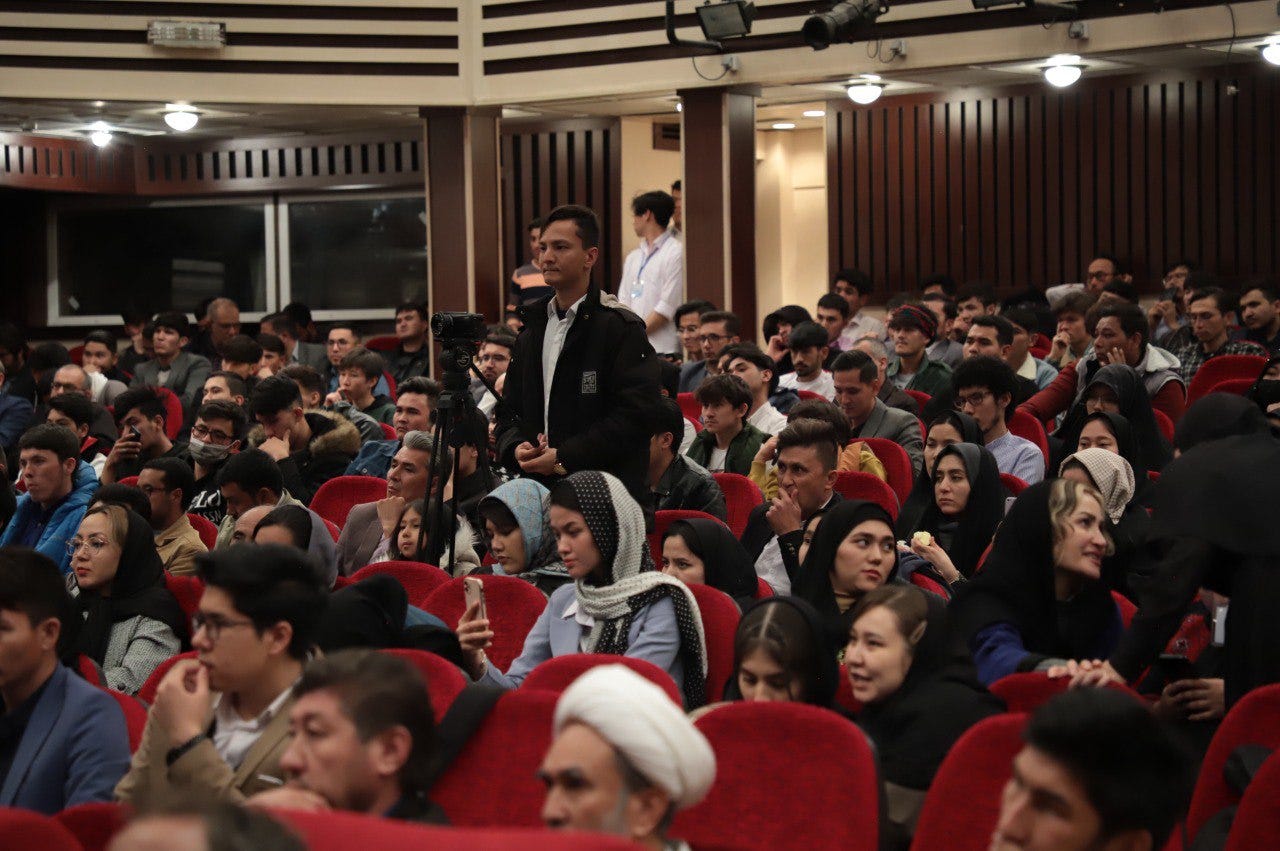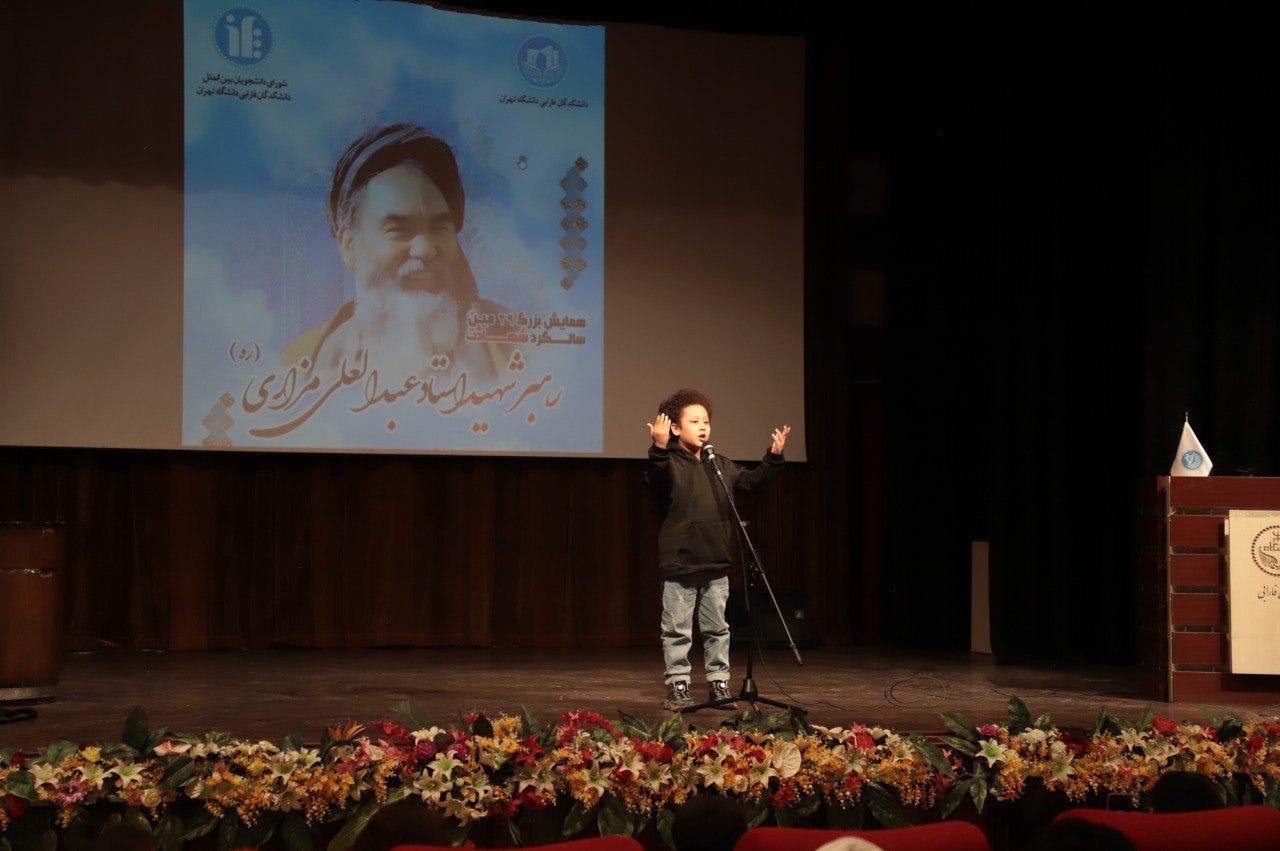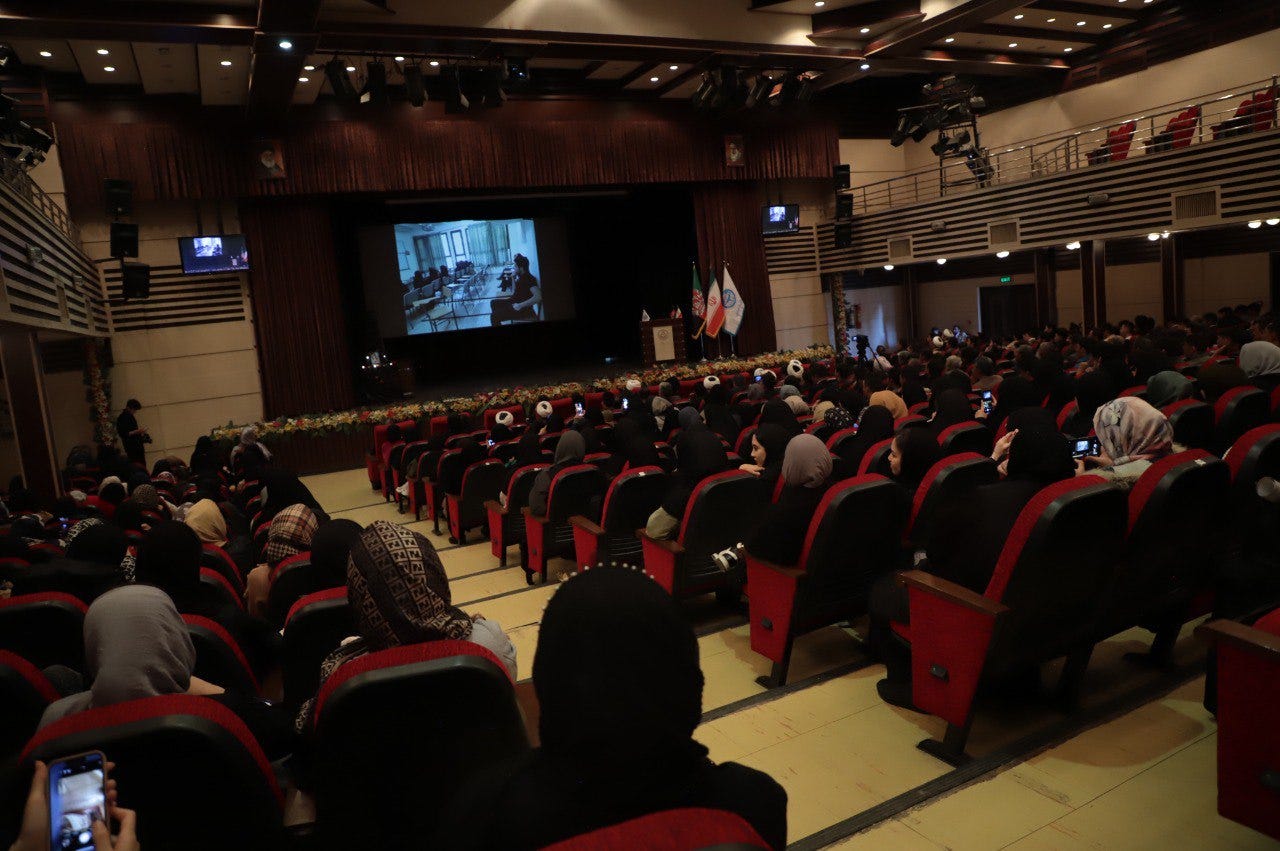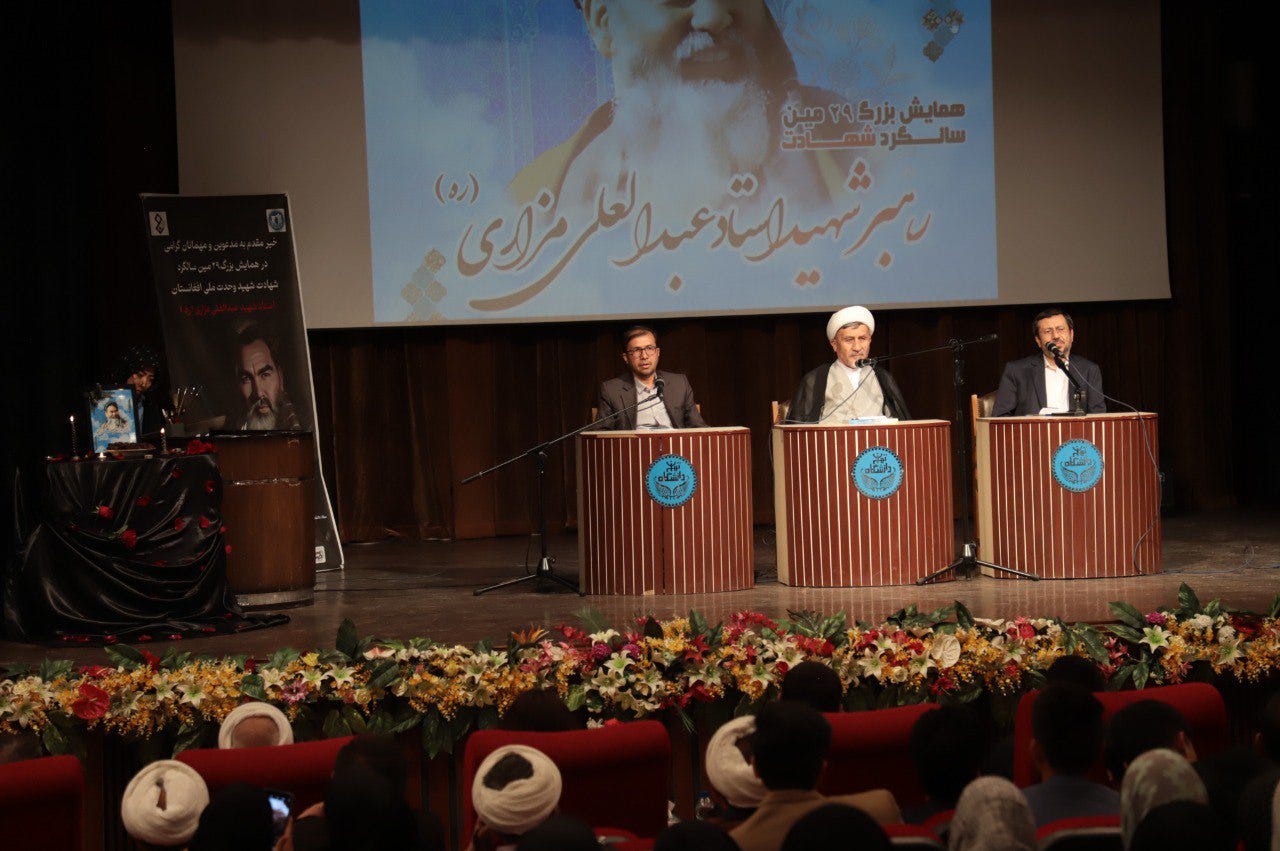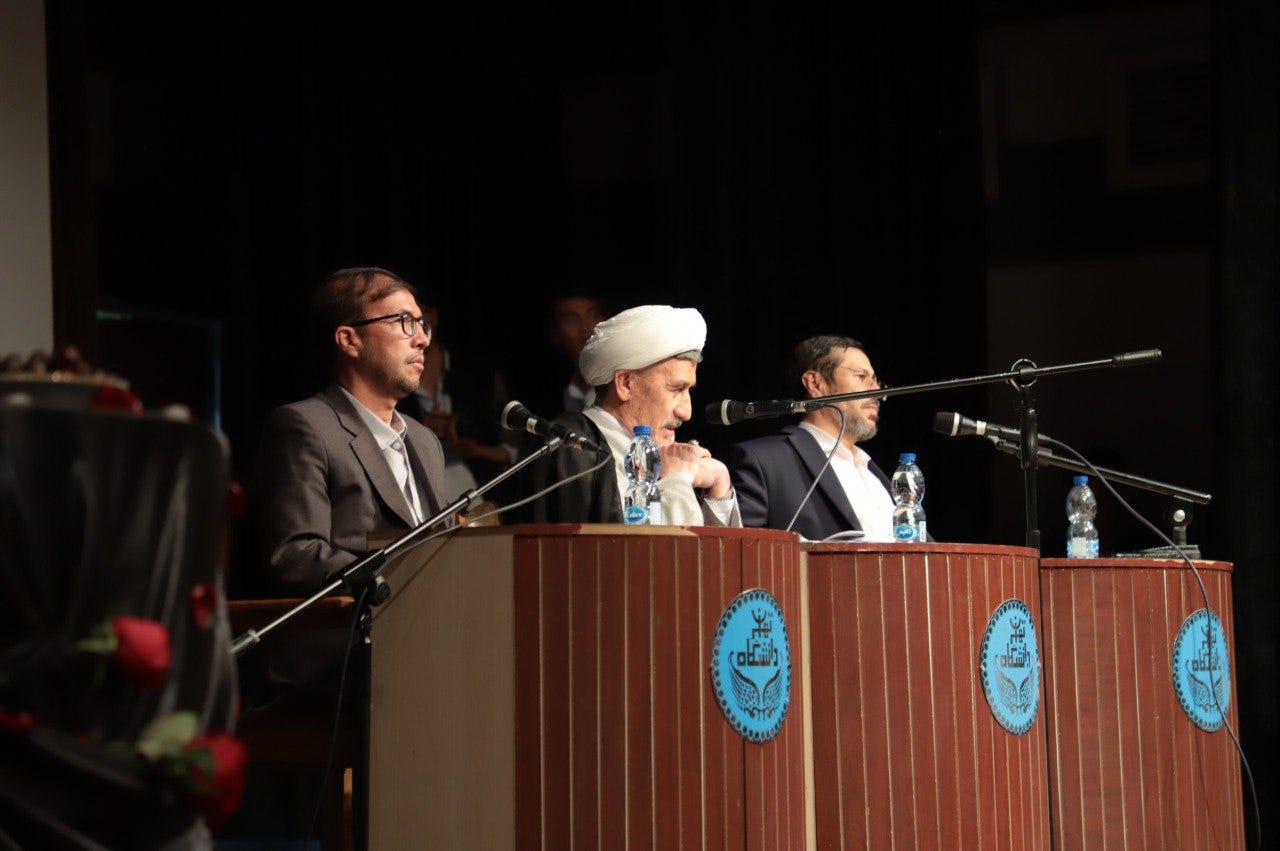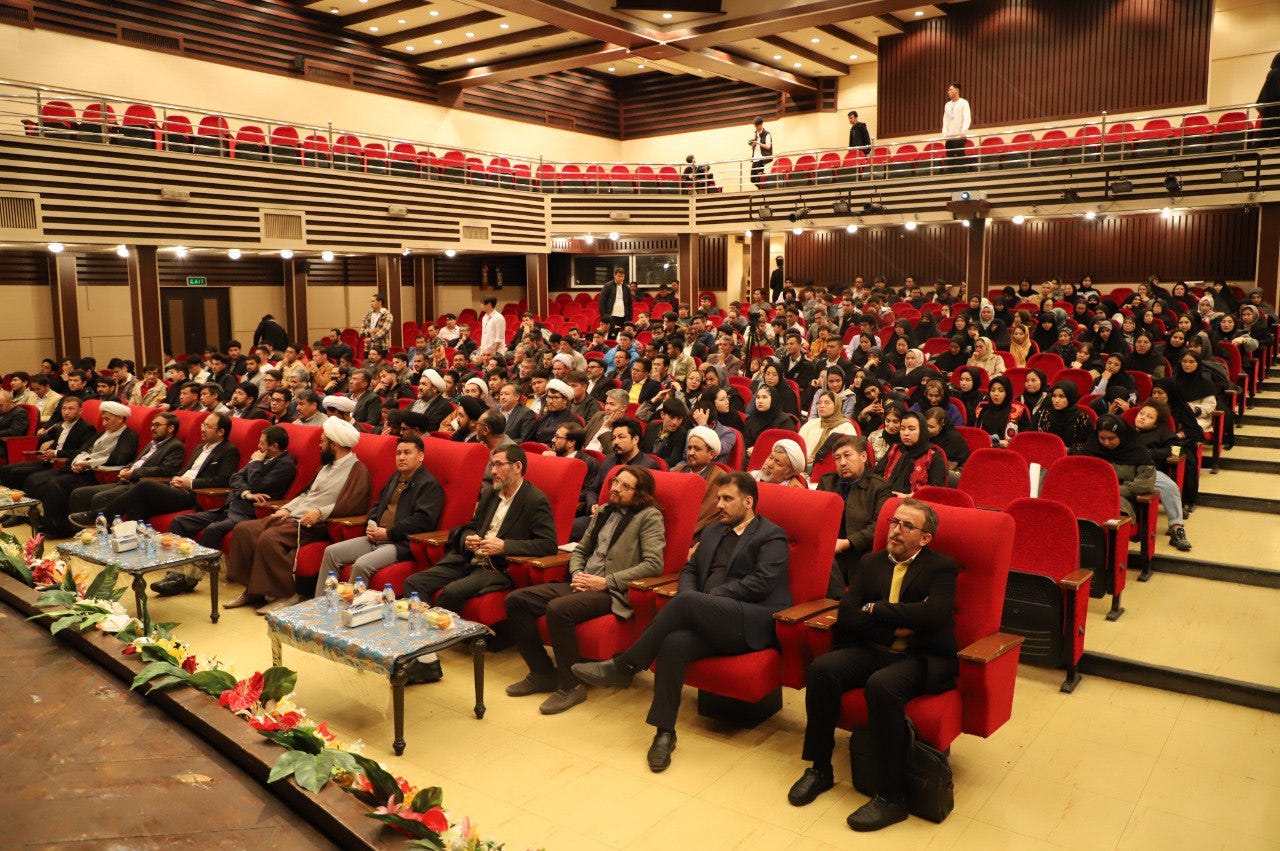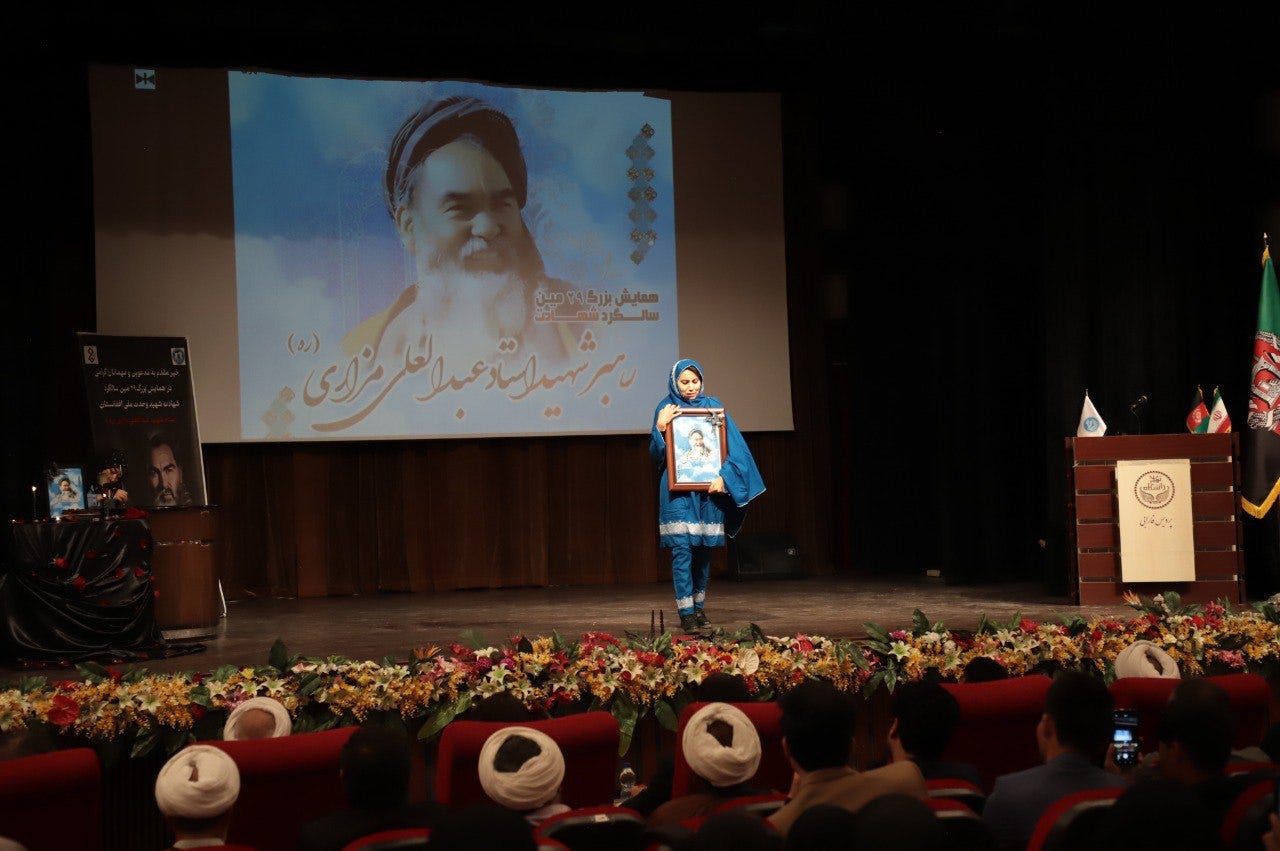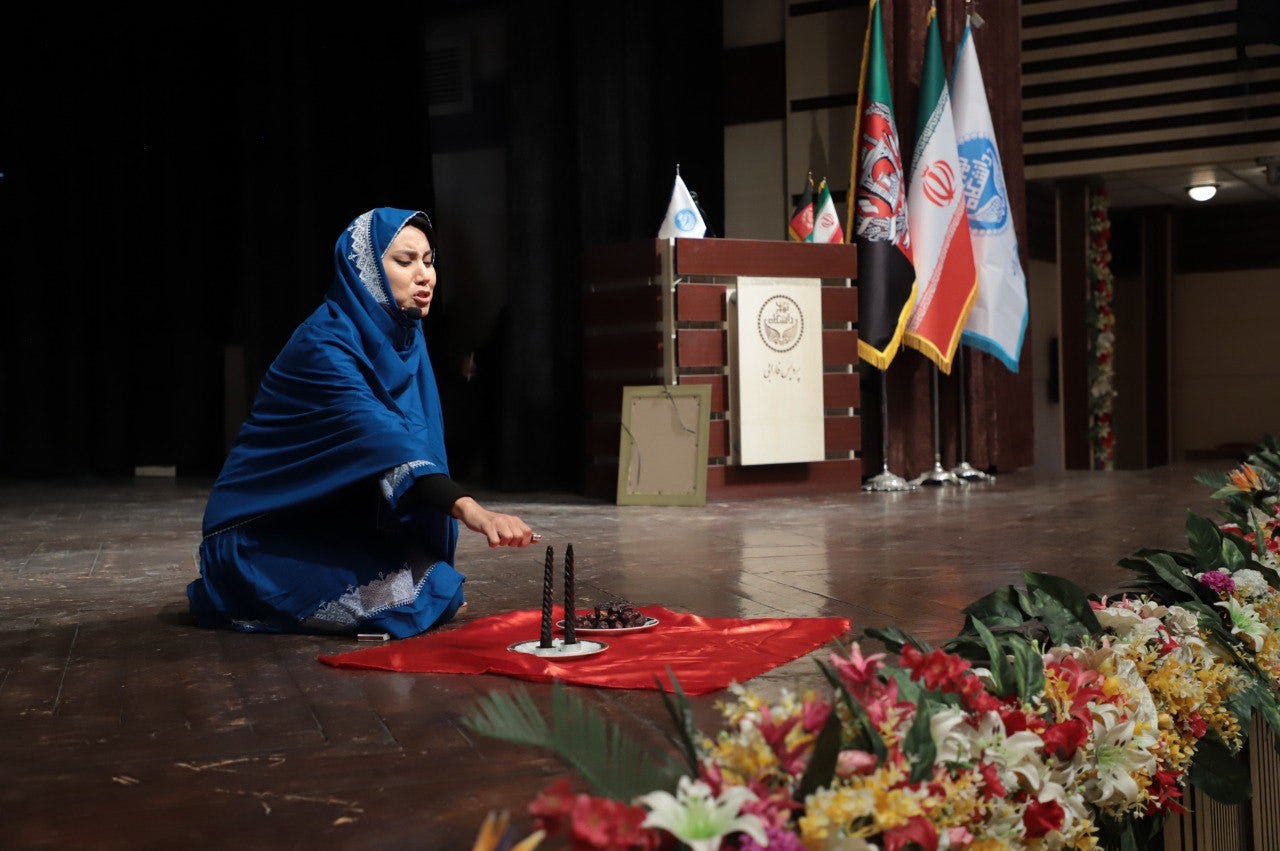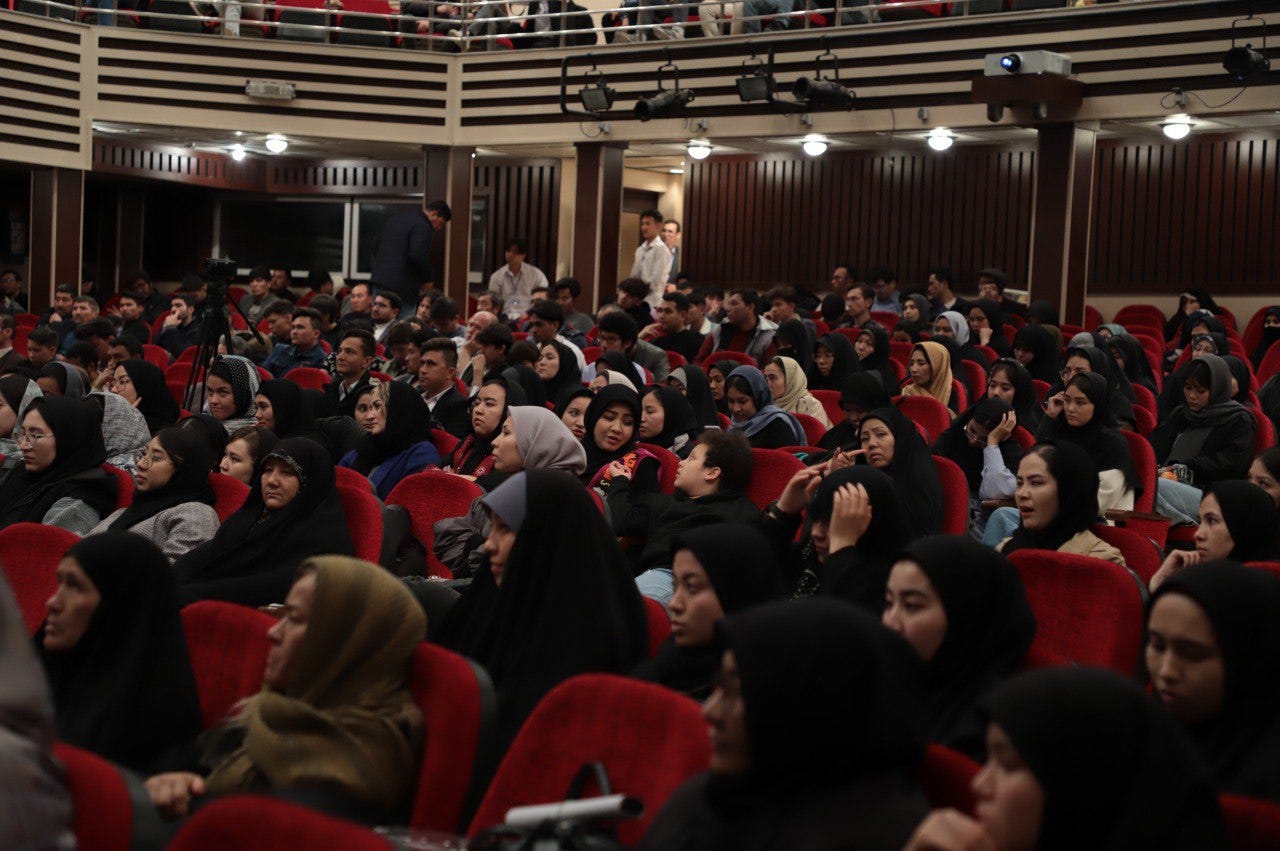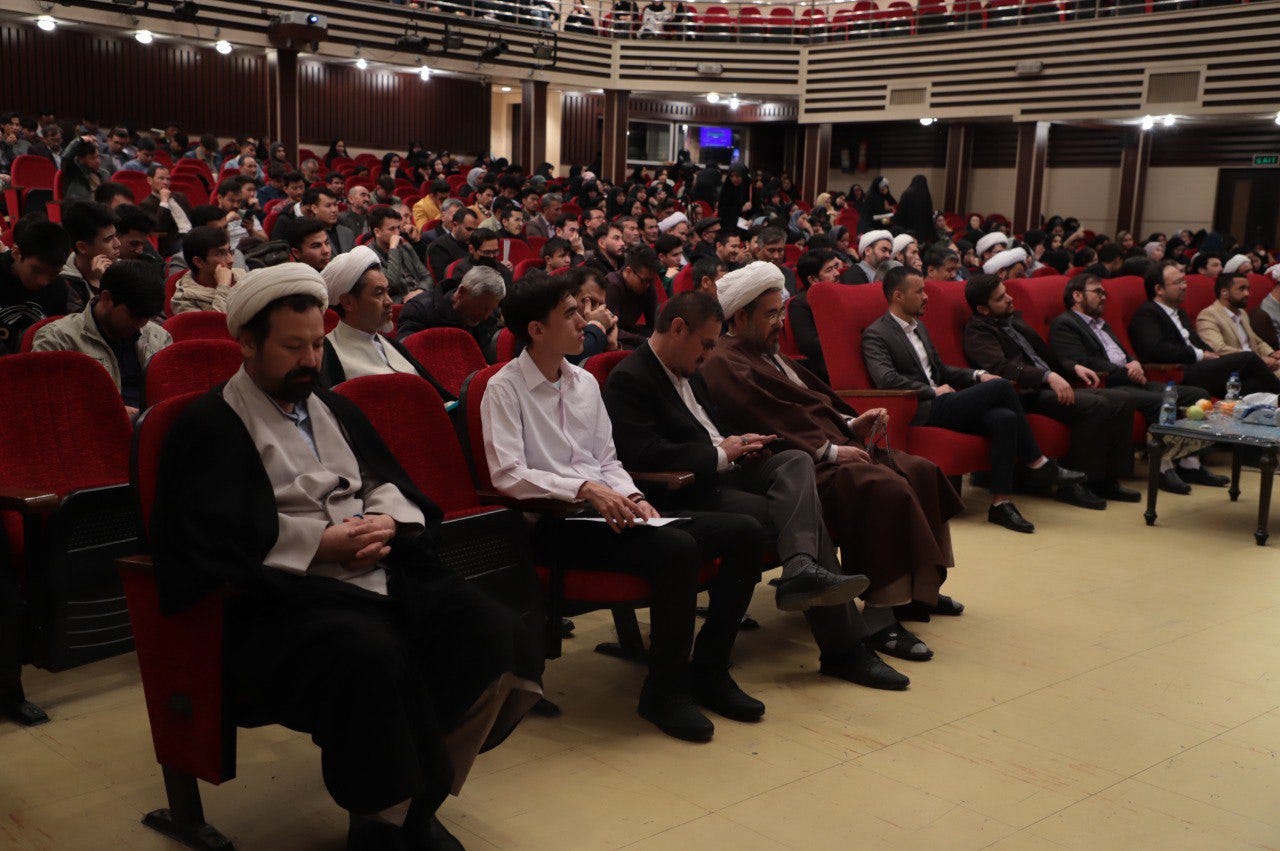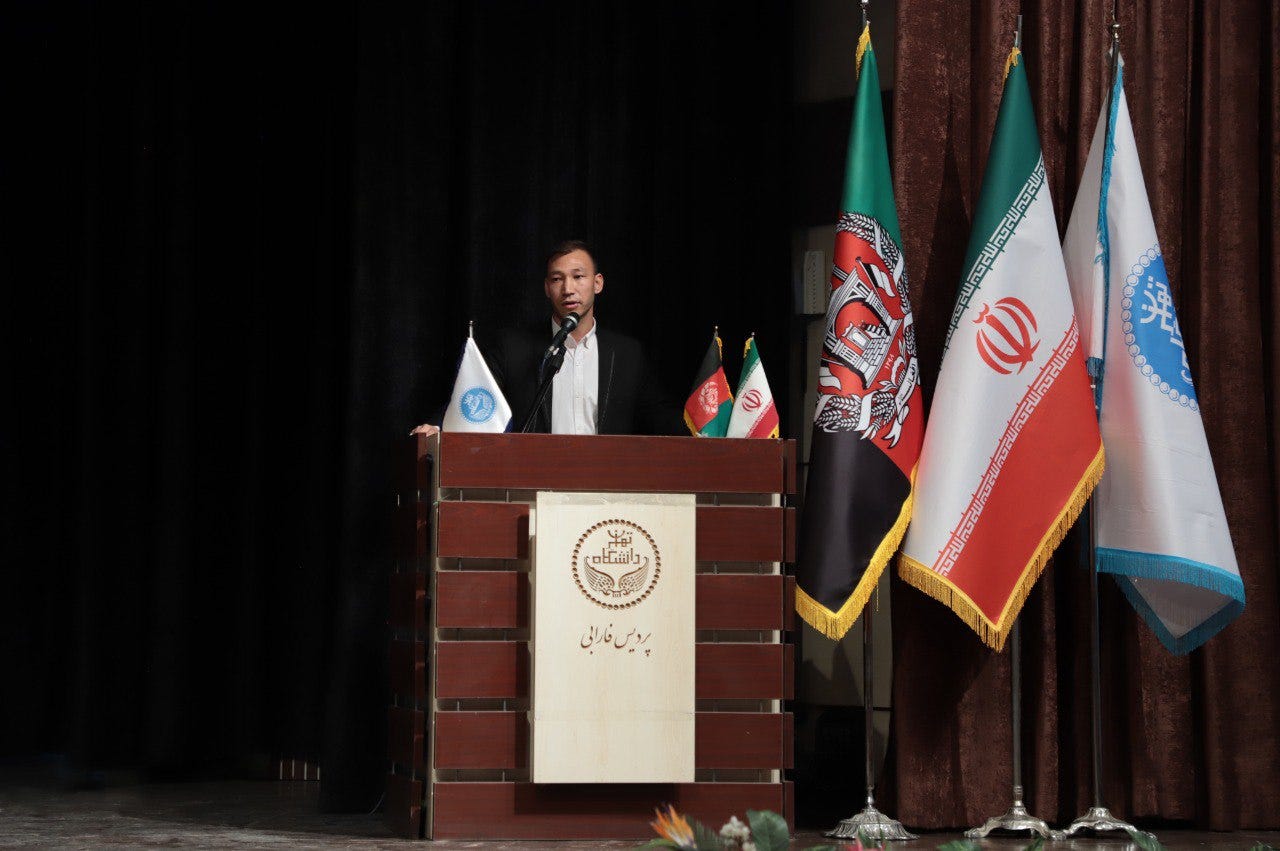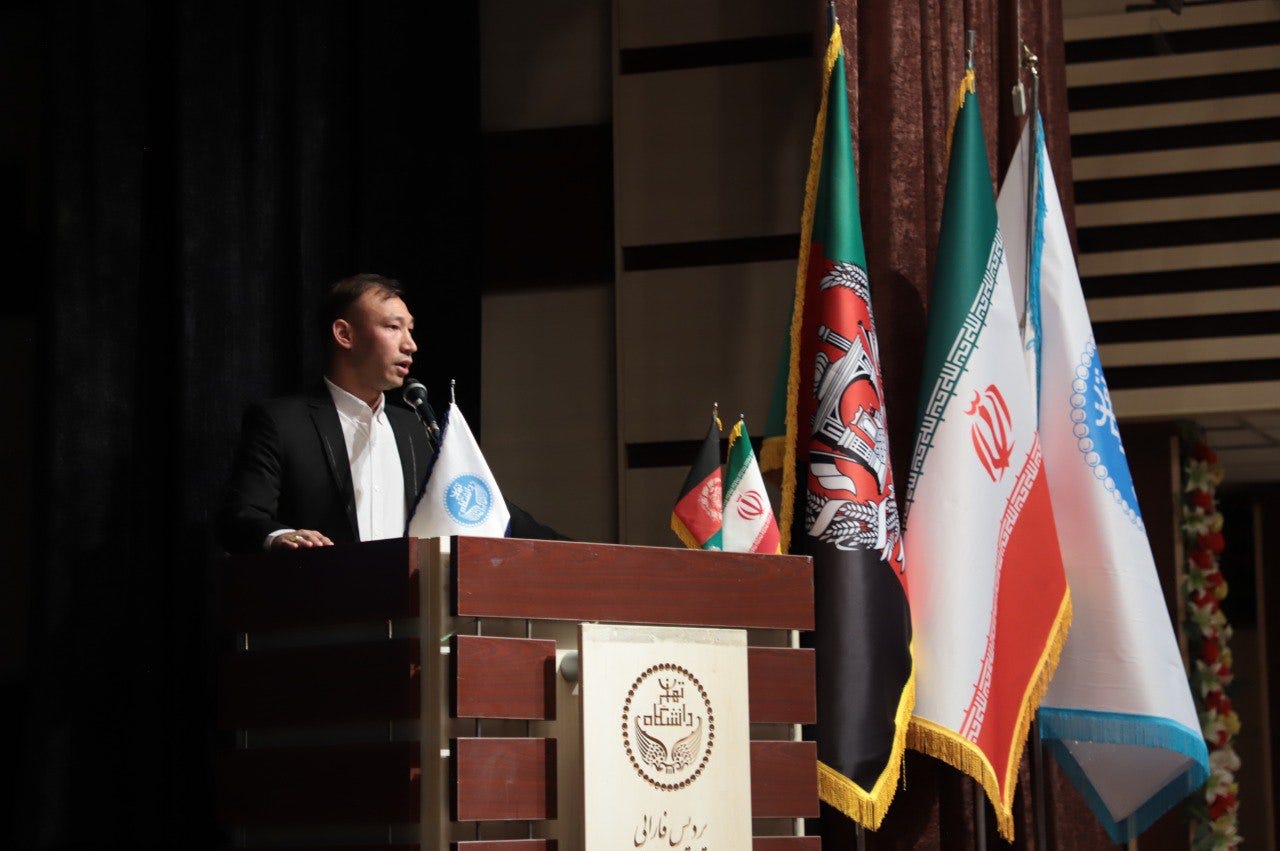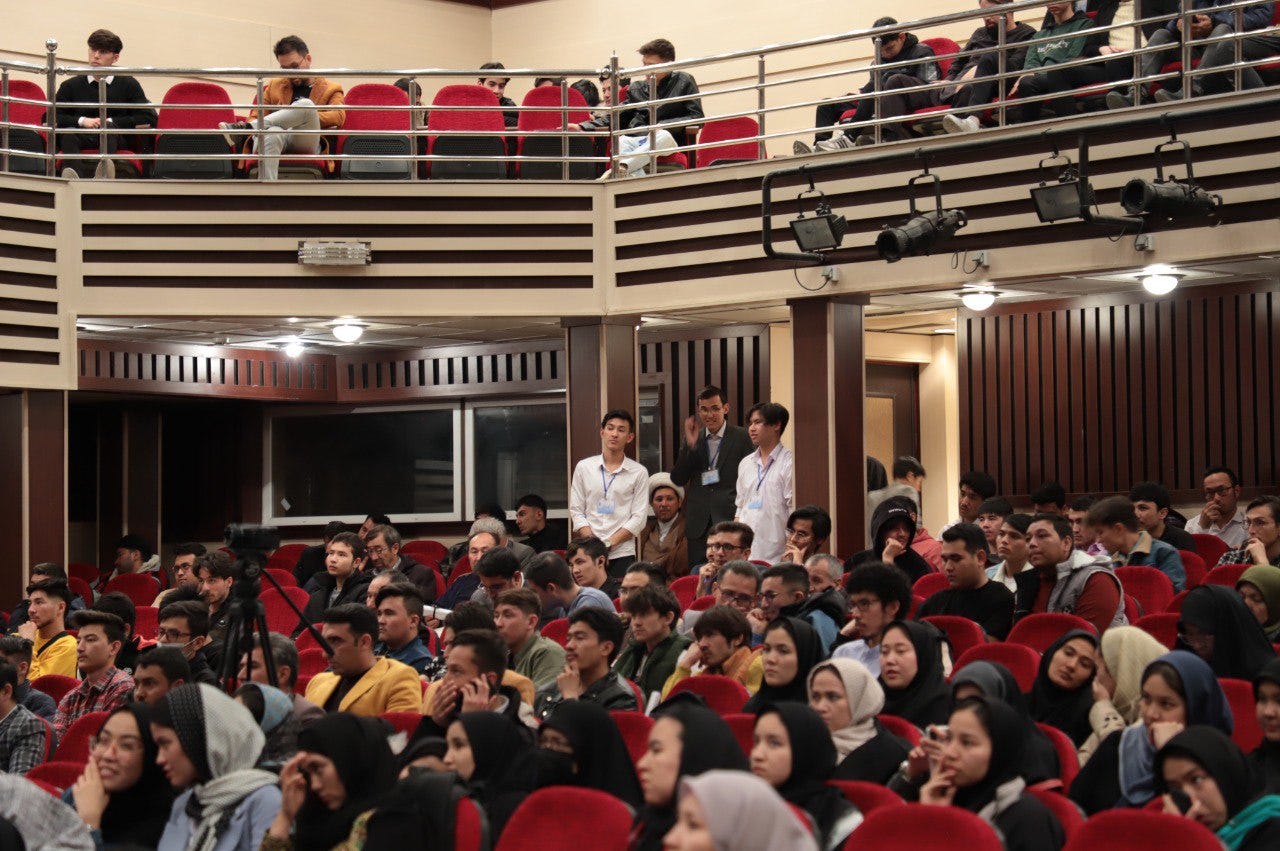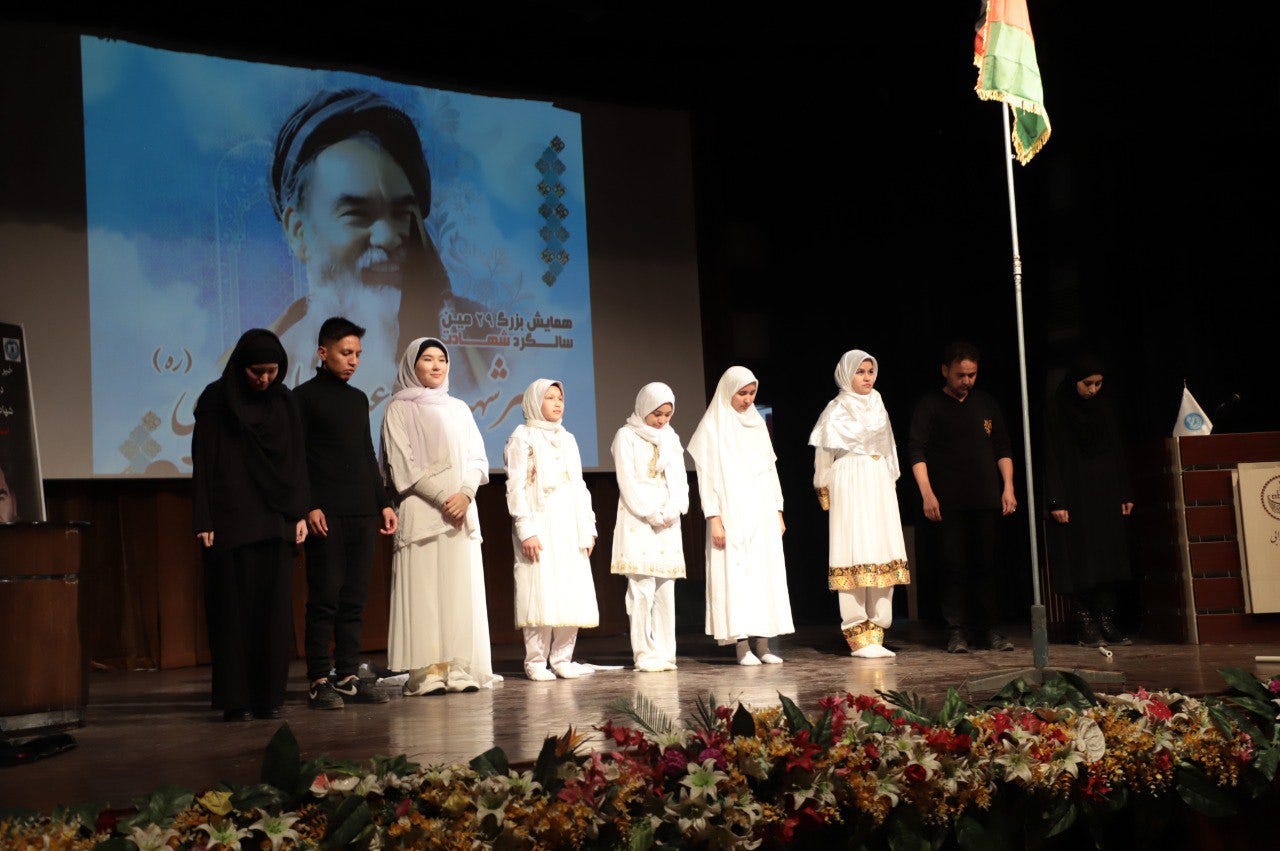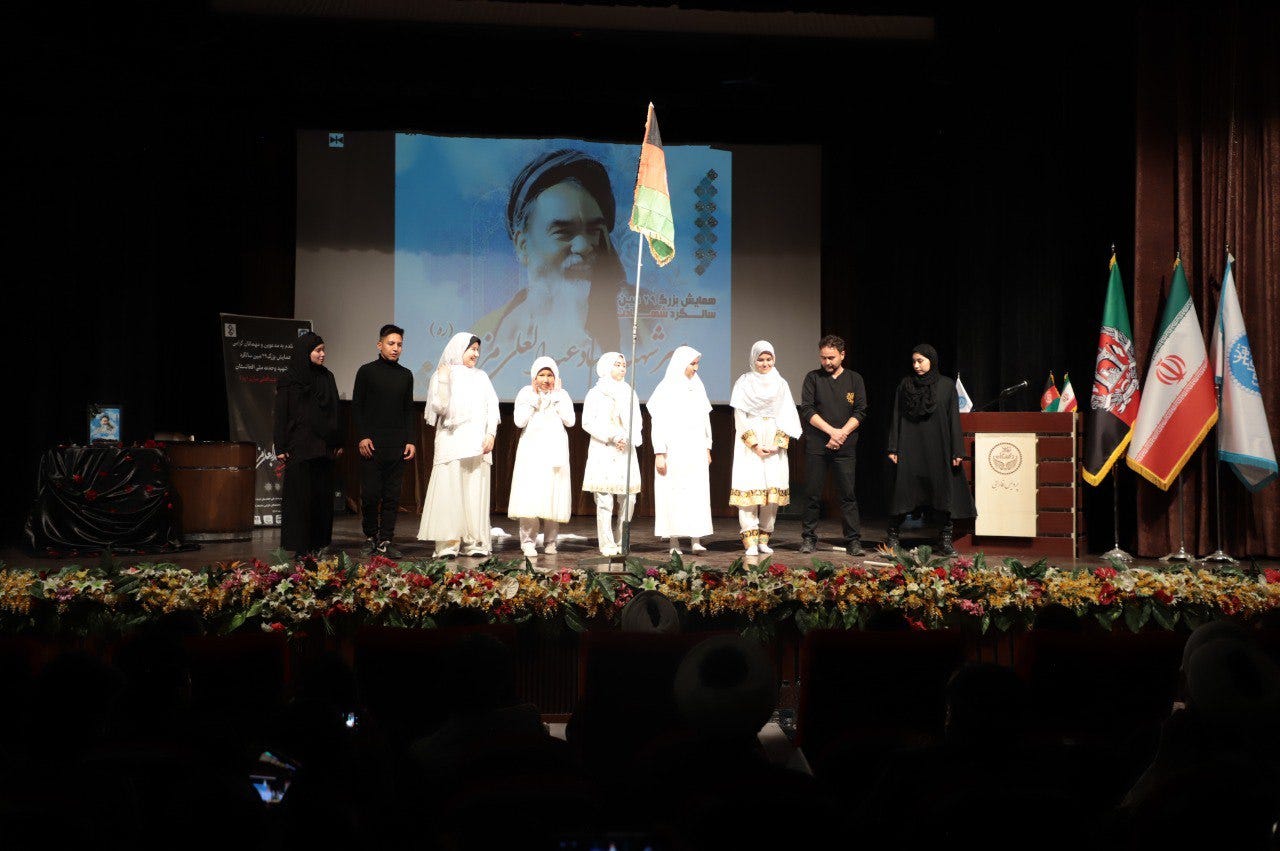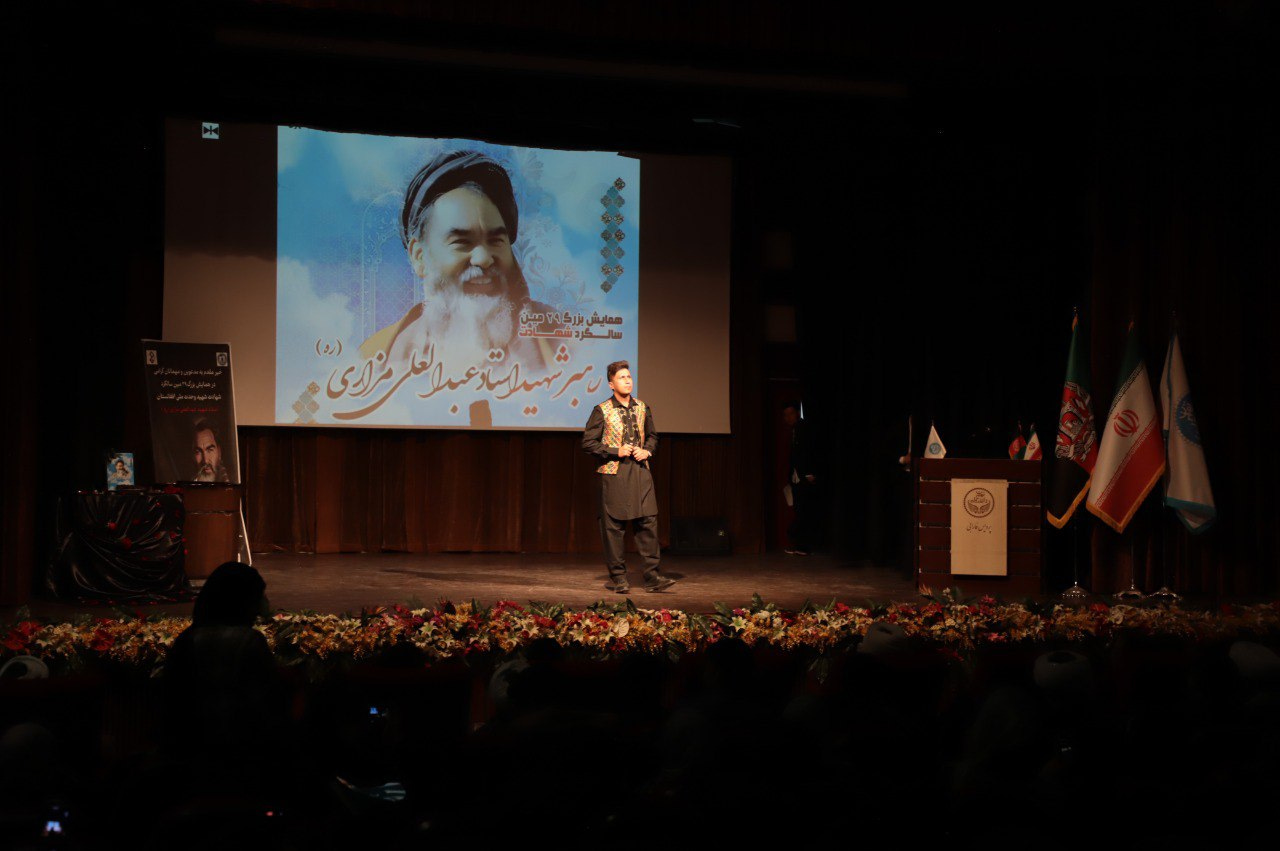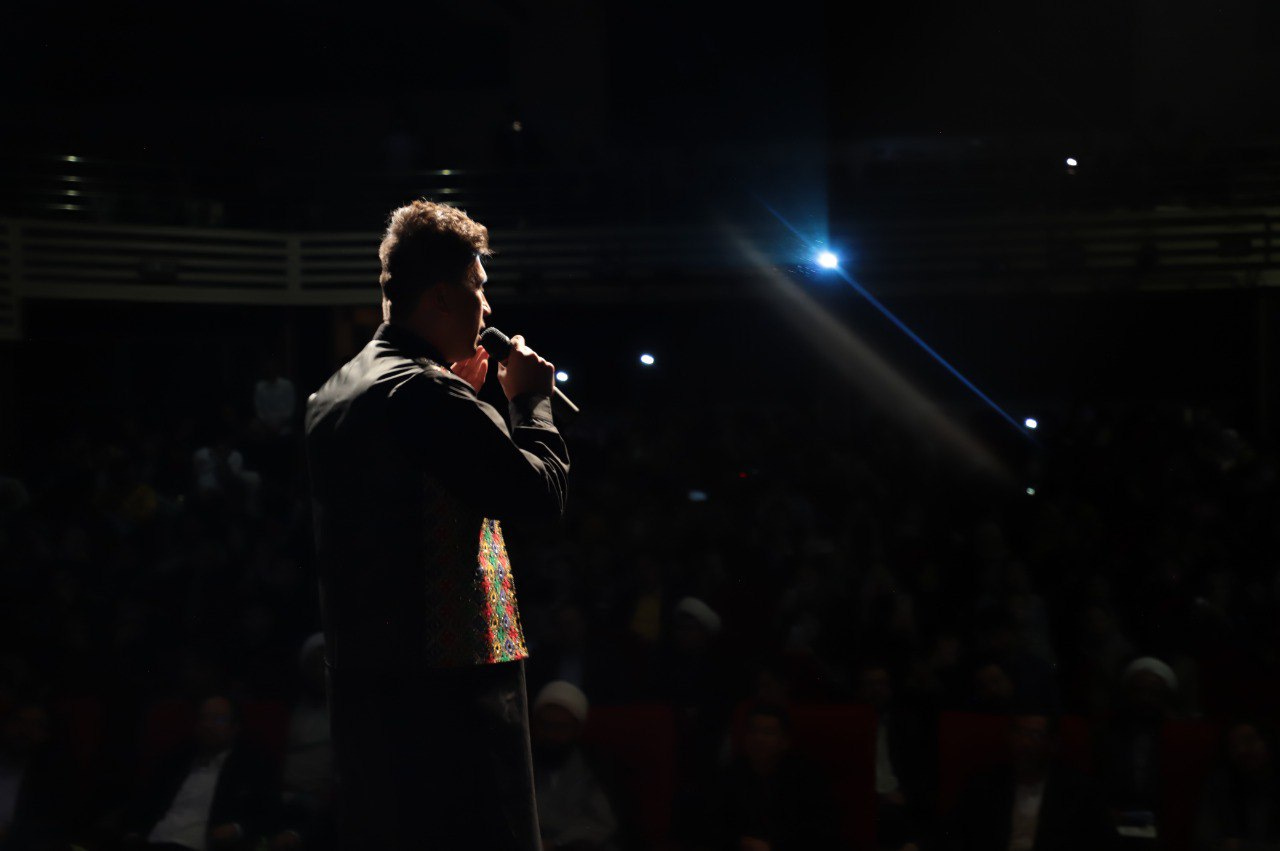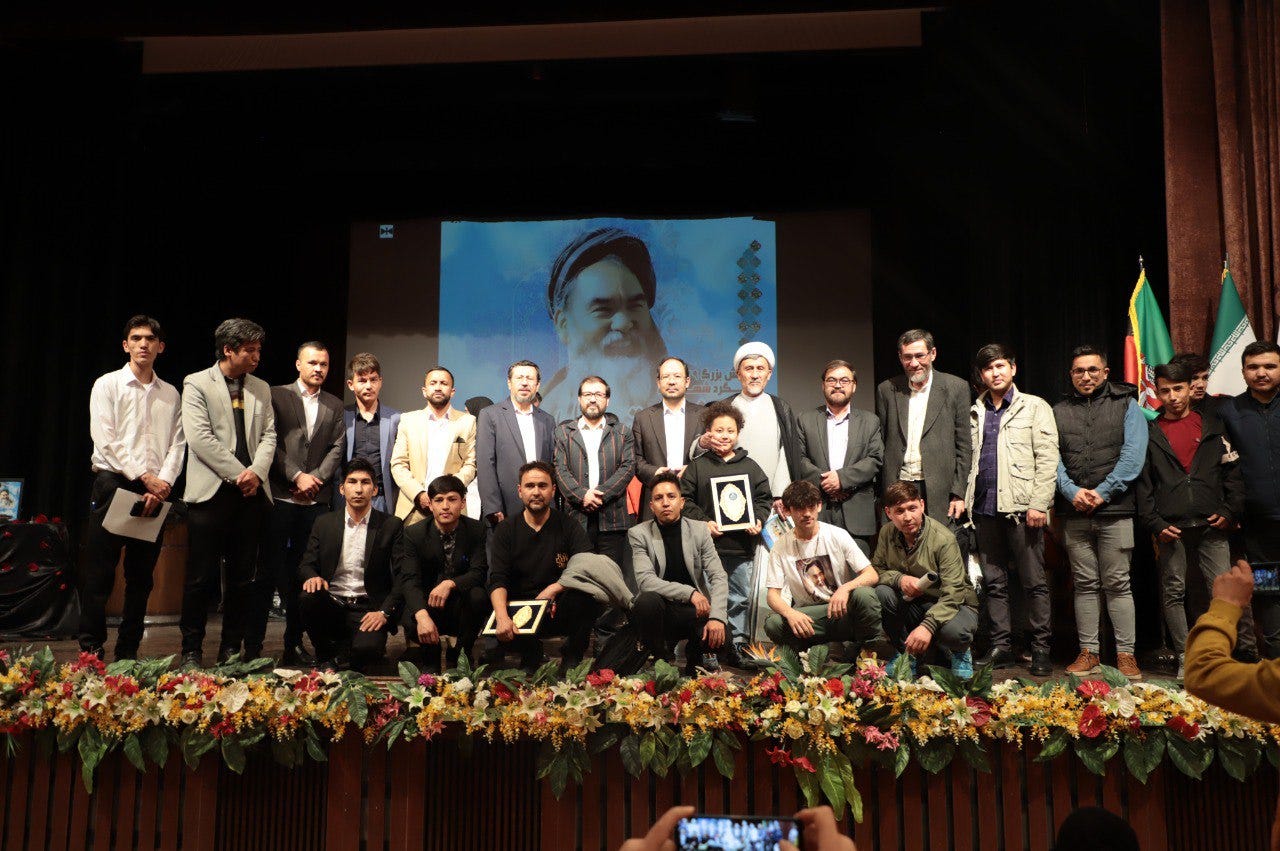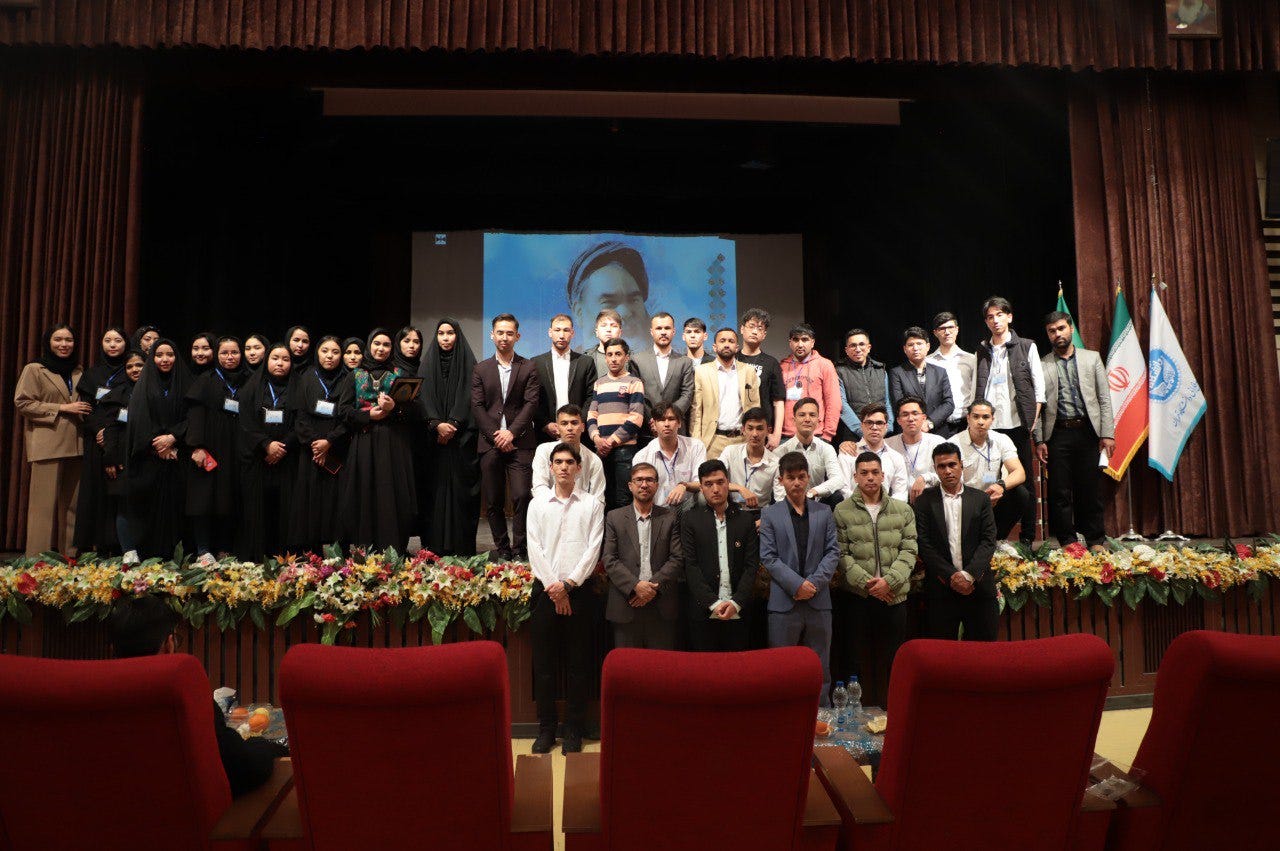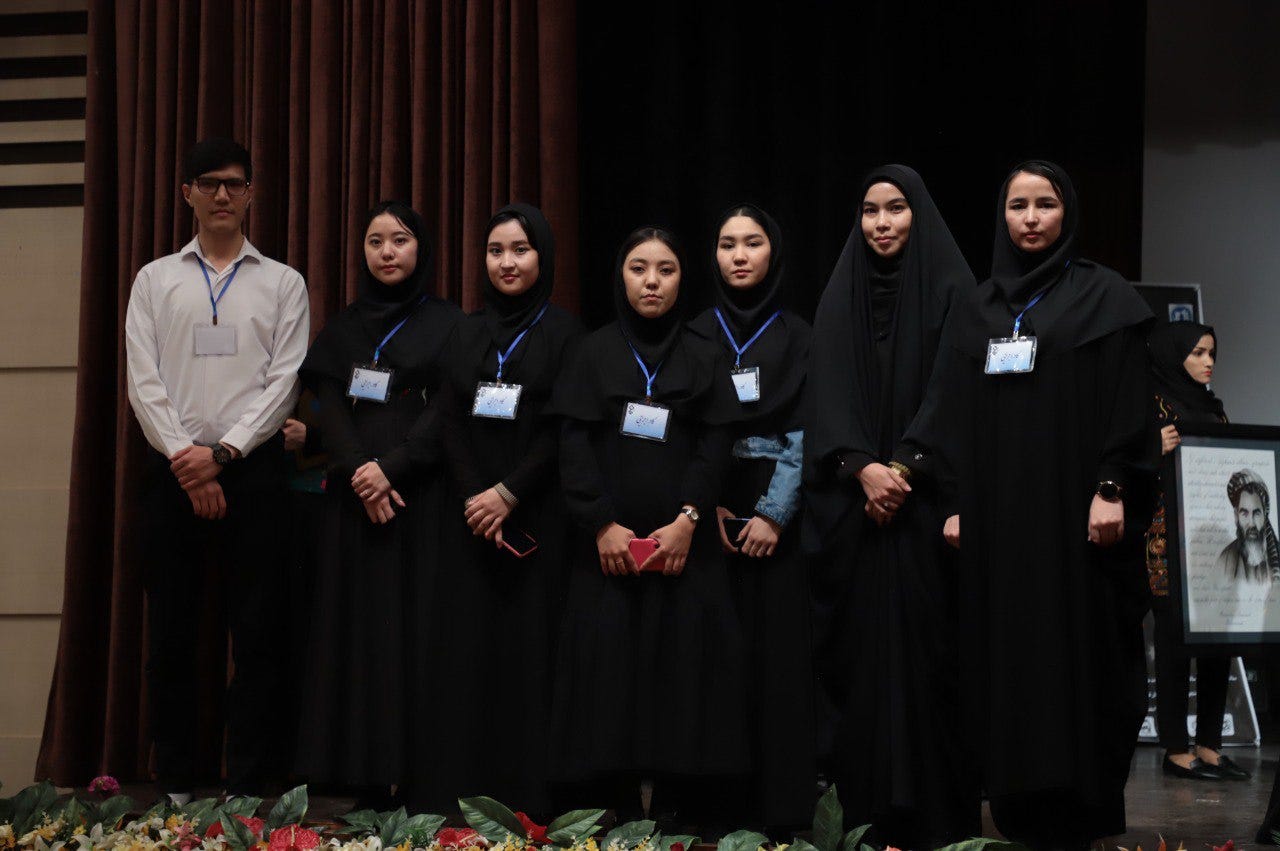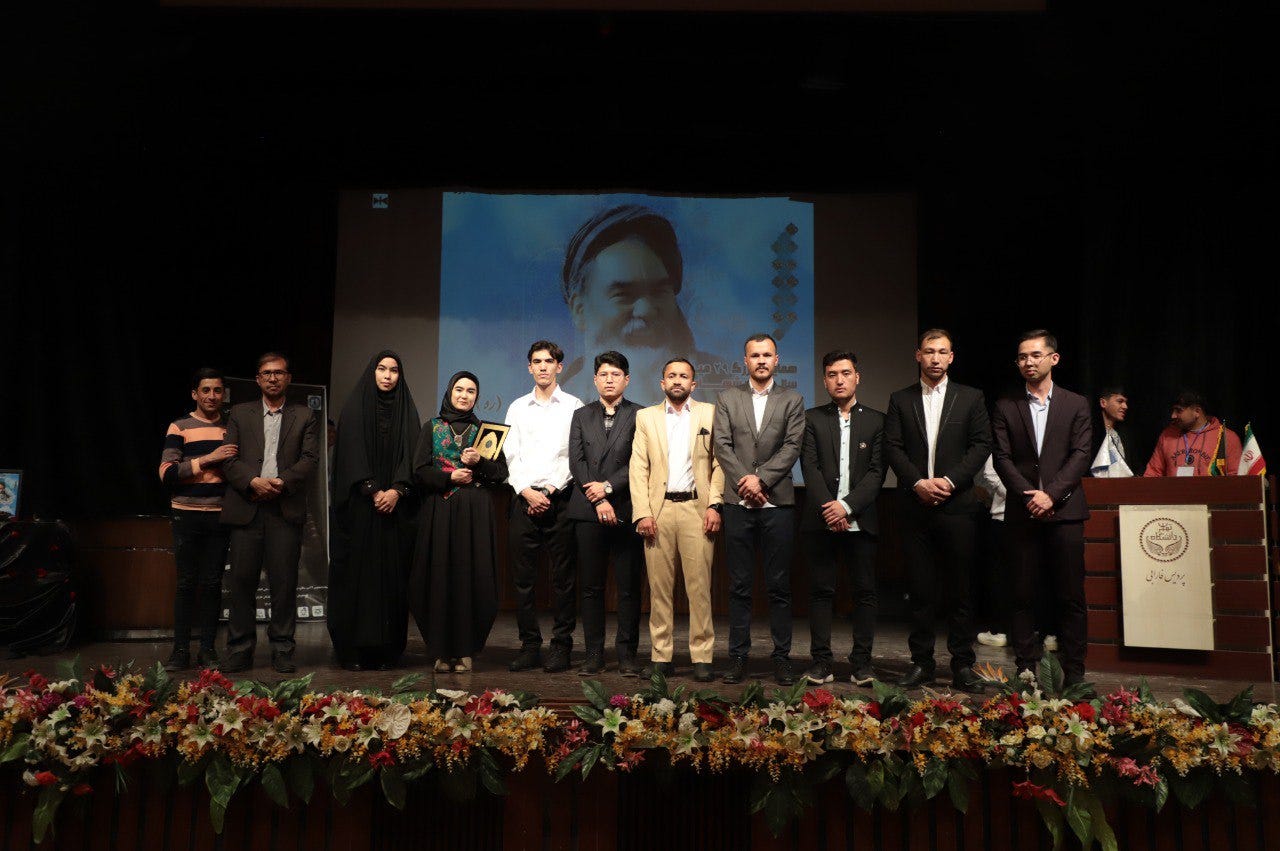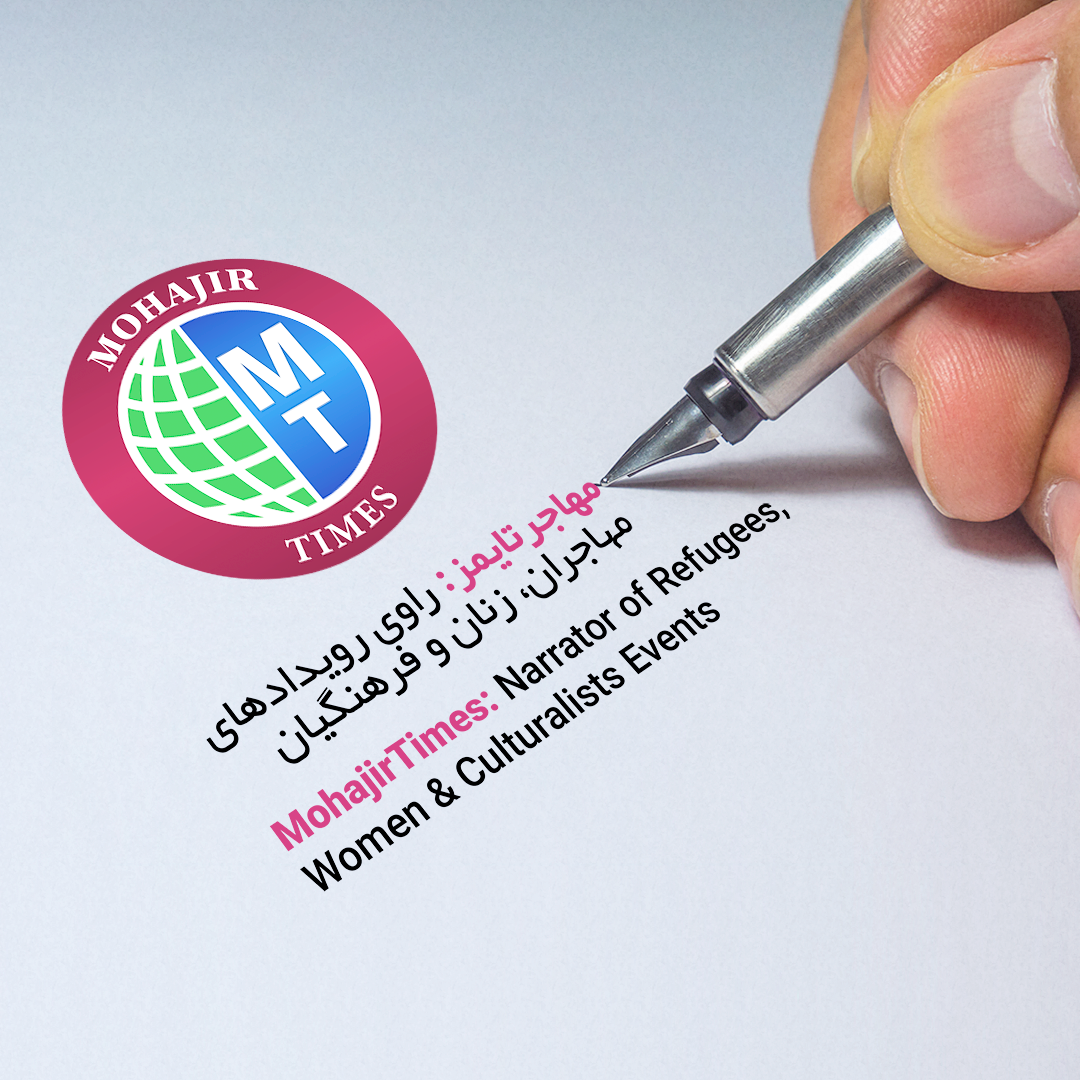The 29th Anniversary of Shahid Mazari Was Honored at Farabi Colleges of Qom Province
Mohajir Times
Report by Aman Shadkam-Asadullah Jafari “Pezhman”
The 29th anniversary of Shahid Abdul Ali Mazari was honored with the warm presence of people, migrants, professors, students, culturalists, artists, writers, women, scientific and religious researchers, and various groups in the Farabi Colleges Culture Hall of Tehran University, Qom Province. The Afghanistani student associations of the Qom province universities organized the grand ceremony.
According to Mohajir Times: In the afternoon of Wednesday, March 6, 2024, a scientific round table entitled “Scientific analysis of the thought National Unity Martyr; Nation-building, federalism and women's place in the thought of Shahid Mazari” was held in the Farabi Colleges of Tehran University with the active participation of people, university professors, students, artists, writers, women, researchers, educators, culturalists, refugees and immigrants of Qom Province.
In this meeting, the secretary of the Afghanistan Students' Association of Qom province and Amir Mohammad, a 9-year-old Afghanistani migrant child, spoke about the activities of the student center and the formal personality of Shahid Mazari, respectively. Nine-year-old Amir Mohammad presented his words as narration about Shahid Mazari. At the same time, entertainment programs such as poetry recitations, theater performances, and recitations of the song “Sarzamin-e-Man” (My Land) by Dawood Sarkhosh were also performed in the layers of the meeting-ceremony.
In the roundtable of this meeting, Mr. Mohammad Sarwar Jawadi, a former member of the Afghanistan House of Representatives (Researcher), and Mr. Mohammad Aslam Shiva (Theologian) analyzed the components and categories of “Nation building, Federalism, and the position of women in the thought of Shahid Mazari.”
Mr. Jawadi spoke about governments, nation-building, and federalism. He started his speech by raising two crucial historical and political questions about the governments and people of Afghanistan: Why don't the people of Afghanistan live a dignified life? Why did the people of Afghanistan not have a stable government throughout history? He answered these questions using Shahid Mazari's intellectual approach. He said that if the people of Afghanistan do not achieve a dignified life, it is because of the lack of a stable government. Because the people of Afghanistan have not had a solid, coherent, and well-founded government so far. No nation has been formed so far that the governments in Afghanistan can remain stable. Mr. Javadi called “The Nation and The State” mutually indispensable. He said that no state can be formed without a nation, and no nation can achieve coherence and stability without a state.
Also, Jawadi explored the state and nation-building in historical processes in a coercive, natural, and discursive form and added that the state and nation-building were created based on the cultural, social, and religious conditions of the same people and land. He explained and elaborated on the mentioned components. However, he analyzed and interpreted the “Discourse” component of government and nation-building more because he adapted this component to the thought of Shahid Mazari and said Shahid Mazari always emphasized that the nation should be formed through a common and all-round understanding and dialogue. An all-encompassing national government should be formed from the heart of that nation. He frankly added that nation and state building had never been created in Afghanistan, but only during the dictatorial rule of Abdul Rahman Khan did some work be done in the field of state building. However, state-building alone promotes oppression and fattens the oppressors.
Besides these words, Mr. Javadi considered the components of culture, economy, and power necessary in nation-building discourse and said that Shahid Mazari was not a theorist or a sociologist. But he was a genius who expressed these issues in simple and popular language for people and society. Also, Mr. Jawadi considered the components and infrastructures of government and nation-building as “knowledge, distributive justice, economy, power, and collective participation.” He believed in the necessity of forming governments and nation-building phenomena such as; “Acceptance of facts, non-conflict of ethnic groups, acceptance of identities,” he said.
He examined this issue from a historical perspective and said that in Afghanistan, governments have been created and established by foreigners. For this reason, a particular people's cultural and social identities are always ignored. For this reason, Mazari entered the field of political campaigns and fought against discrimination and denial of the identity of the Hazaras. While Martyr Mazari was not a political or military person at the beginning but rather a cultural figure, it was the force of time that dragged him to the burning trenches of struggle and politics so that the identity and nature of a large group of human society would not be distorted and erased.
Mr. Jawadi addressed the audience with a comparative discussion. He added that it is unfortunate that Ali is famous for his Zulfiqar (Sword) address, Hassan for his peace-seeking address, and also Shahid Mazari for his war-seeking address. He called Mazari a genius and a cultural thinker and attributed the warrior and warlord to Shahid Mazari as the work of enemies of unity, justice, and equality.
He said that Shahid Mazari proposed three plans to get out of Afghanistan's internal crisis and disasters and to reach a united nation and a powerful government; “A Consensus Government, a Democratic Government (Elections) and a Federalist Government.” However, due to time constraints, Mr. Javadi did not have time to elaborate on the discussion of federalism in the thought of Shahid Mazari. Therefore, at the end of his speech, Jawadi jokingly said that before coming here, someone said in my ear to speak less, and because of this, I got nervous and angry, and the scientific discussion roundtable was led astray, and I spoke more.
Meanwhile, after Mr. Mohammad Sarwar Javadi, Mr. Mohammad Aslam Shiva discussed the dimensions of Shahid Mazari's character and said that Mazari is an unrepeatable historical figure. He added that March is actually the month of Muharram and seeking justice. Also, Mr. Shiva advised the audience and listeners of this event to read the books published about Shahid Mazari and listen to his speeches.
After the end of the scientific roundtable, Mr. Mohammad Aman Ebrahimi, the secretary of the Afghanistani Students' Association of Qom province, came to the stage. He introduced and explained the valuable activities of Afghanistan students of Qom province in a categorized, compact, and concise manner by presenting video references, PowerPoint presentations, and projectors to the audience at the ceremony. In this explanation, the activities of Afghanistani students in Qom province included medical services, medical counseling, academic counseling, visa counseling, marriage counseling, and family planning, and also following up on the residence problems of immigrant and refugee students in Qom province.
At the end of this magnificent ceremony, in addition to the lottery and the song Sarzamin-e-Man (My Land State) by Daood Sarkhosh, the “Heart of Asia” theater group, which consists of young immigrants and Afghanistani refugees living in Iran and directed by Ibrahim Haidari, performed a gorgeous theatrical piece with a captivating concept. They performed an attractive program with the main content of criticizing politicians and the collapse of Afghanistan's systems and nations' cohesion and stability.
Section of the Pictures from the 29th Anniversary of Shahid Abdul Ali Mazari in Farabi Colleges of Tehran University, Qom Branch




